

Choose Your Test
- Search Blogs By Category
- College Admissions
- AP and IB Exams
- GPA and Coursework
The Complete IB Extended Essay Guide: Examples, Topics, and Ideas
International Baccalaureate (IB)

IB students around the globe fear writing the Extended Essay, but it doesn't have to be a source of stress! In this article, I'll get you excited about writing your Extended Essay and provide you with the resources you need to get an A on it.
If you're reading this article, I'm going to assume you're an IB student getting ready to write your Extended Essay. If you're looking at this as a potential future IB student, I recommend reading our introductory IB articles first, including our guide to what the IB program is and our full coverage of the IB curriculum .
IB Extended Essay: Why Should You Trust My Advice?
I myself am a recipient of an IB Diploma, and I happened to receive an A on my IB Extended Essay. Don't believe me? The proof is in the IBO pudding:

If you're confused by what this report means, EE is short for Extended Essay , and English A1 is the subject that my Extended Essay topic coordinated with. In layman's terms, my IB Diploma was graded in May 2010, I wrote my Extended Essay in the English A1 category, and I received an A grade on it.
What Is the Extended Essay in the IB Diploma Programme?
The IB Extended Essay, or EE , is a mini-thesis you write under the supervision of an IB advisor (an IB teacher at your school), which counts toward your IB Diploma (learn more about the major IB Diploma requirements in our guide) . I will explain exactly how the EE affects your Diploma later in this article.
For the Extended Essay, you will choose a research question as a topic, conduct the research independently, then write an essay on your findings . The essay itself is a long one—although there's a cap of 4,000 words, most successful essays get very close to this limit.
Keep in mind that the IB requires this essay to be a "formal piece of academic writing," meaning you'll have to do outside research and cite additional sources.
The IB Extended Essay must include the following:
- A title page
- Contents page
- Introduction
- Body of the essay
- References and bibliography
Additionally, your research topic must fall into one of the six approved DP categories , or IB subject groups, which are as follows:
- Group 1: Studies in Language and Literature
- Group 2: Language Acquisition
- Group 3: Individuals and Societies
- Group 4: Sciences
- Group 5: Mathematics
- Group 6: The Arts
Once you figure out your category and have identified a potential research topic, it's time to pick your advisor, who is normally an IB teacher at your school (though you can also find one online ). This person will help direct your research, and they'll conduct the reflection sessions you'll have to do as part of your Extended Essay.
As of 2018, the IB requires a "reflection process" as part of your EE supervision process. To fulfill this requirement, you have to meet at least three times with your supervisor in what the IB calls "reflection sessions." These meetings are not only mandatory but are also part of the formal assessment of the EE and your research methods.
According to the IB, the purpose of these meetings is to "provide an opportunity for students to reflect on their engagement with the research process." Basically, these meetings give your supervisor the opportunity to offer feedback, push you to think differently, and encourage you to evaluate your research process.
The final reflection session is called the viva voce, and it's a short 10- to 15-minute interview between you and your advisor. This happens at the very end of the EE process, and it's designed to help your advisor write their report, which factors into your EE grade.
Here are the topics covered in your viva voce :
- A check on plagiarism and malpractice
- Your reflection on your project's successes and difficulties
- Your reflection on what you've learned during the EE process
Your completed Extended Essay, along with your supervisor's report, will then be sent to the IB to be graded. We'll cover the assessment criteria in just a moment.

We'll help you learn how to have those "lightbulb" moments...even on test day!
What Should You Write About in Your IB Extended Essay?
You can technically write about anything, so long as it falls within one of the approved categories listed above.
It's best to choose a topic that matches one of the IB courses , (such as Theatre, Film, Spanish, French, Math, Biology, etc.), which shouldn't be difficult because there are so many class subjects.
Here is a range of sample topics with the attached extended essay:
- Biology: The Effect of Age and Gender on the Photoreceptor Cells in the Human Retina
- Chemistry: How Does Reflux Time Affect the Yield and Purity of Ethyl Aminobenzoate (Benzocaine), and How Effective is Recrystallisation as a Purification Technique for This Compound?
- English: An Exploration of Jane Austen's Use of the Outdoors in Emma
- Geography: The Effect of Location on the Educational Attainment of Indigenous Secondary Students in Queensland, Australia
- Math: Alhazen's Billiard Problem
- Visual Arts: Can Luc Tuymans Be Classified as a Political Painter?
You can see from how varied the topics are that you have a lot of freedom when it comes to picking a topic . So how do you pick when the options are limitless?

How to Write a Stellar IB Extended Essay: 6 Essential Tips
Below are six key tips to keep in mind as you work on your Extended Essay for the IB DP. Follow these and you're sure to get an A!
#1: Write About Something You Enjoy
You can't expect to write a compelling essay if you're not a fan of the topic on which you're writing. For example, I just love British theatre and ended up writing my Extended Essay on a revolution in post-WWII British theatre. (Yes, I'm definitely a #TheatreNerd.)
I really encourage anyone who pursues an IB Diploma to take the Extended Essay seriously. I was fortunate enough to receive a full-tuition merit scholarship to USC's School of Dramatic Arts program. In my interview for the scholarship, I spoke passionately about my Extended Essay; thus, I genuinely think my Extended Essay helped me get my scholarship.
But how do you find a topic you're passionate about? Start by thinking about which classes you enjoy the most and why . Do you like math classes because you like to solve problems? Or do you enjoy English because you like to analyze literary texts?
Keep in mind that there's no right or wrong answer when it comes to choosing your Extended Essay topic. You're not more likely to get high marks because you're writing about science, just like you're not doomed to failure because you've chosen to tackle the social sciences. The quality of what you produce—not the field you choose to research within—will determine your grade.
Once you've figured out your category, you should brainstorm more specific topics by putting pen to paper . What was your favorite chapter you learned in that class? Was it astrophysics or mechanics? What did you like about that specific chapter? Is there something you want to learn more about? I recommend spending a few hours on this type of brainstorming.
One last note: if you're truly stumped on what to research, pick a topic that will help you in your future major or career . That way you can use your Extended Essay as a talking point in your college essays (and it will prepare you for your studies to come too!).
#2: Select a Topic That Is Neither Too Broad nor Too Narrow
There's a fine line between broad and narrow. You need to write about something specific, but not so specific that you can't write 4,000 words on it.
You can't write about WWII because that would be a book's worth of material. You also don't want to write about what type of soup prisoners of war received behind enemy lines, because you probably won’t be able to come up with 4,000 words of material about it. However, you could possibly write about how the conditions in German POW camps—and the rations provided—were directly affected by the Nazis' successes and failures on the front, including the use of captured factories and prison labor in Eastern Europe to increase production. WWII military history might be a little overdone, but you get my point.
If you're really stuck trying to pinpoint a not-too-broad-or-too-narrow topic, I suggest trying to brainstorm a topic that uses a comparison. Once you begin looking through the list of sample essays below, you'll notice that many use comparisons to formulate their main arguments.
I also used a comparison in my EE, contrasting Harold Pinter's Party Time with John Osborne's Look Back in Anger in order to show a transition in British theatre. Topics with comparisons of two to three plays, books, and so on tend to be the sweet spot. You can analyze each item and then compare them with one another after doing some in-depth analysis of each individually. The ways these items compare and contrast will end up forming the thesis of your essay!
When choosing a comparative topic, the key is that the comparison should be significant. I compared two plays to illustrate the transition in British theatre, but you could compare the ways different regional dialects affect people's job prospects or how different temperatures may or may not affect the mating patterns of lightning bugs. The point here is that comparisons not only help you limit your topic, but they also help you build your argument.
Comparisons are not the only way to get a grade-A EE, though. If after brainstorming, you pick a non-comparison-based topic and are still unsure whether your topic is too broad or narrow, spend about 30 minutes doing some basic research and see how much material is out there.
If there are more than 1,000 books, articles, or documentaries out there on that exact topic, it may be too broad. But if there are only two books that have any connection to your topic, it may be too narrow. If you're still unsure, ask your advisor—it's what they're there for! Speaking of advisors...

Don't get stuck with a narrow topic!
#3: Choose an Advisor Who Is Familiar With Your Topic
If you're not certain of who you would like to be your advisor, create a list of your top three choices. Next, write down the pros and cons of each possibility (I know this sounds tedious, but it really helps!).
For example, Mr. Green is my favorite teacher and we get along really well, but he teaches English. For my EE, I want to conduct an experiment that compares the efficiency of American electric cars with foreign electric cars.
I had Ms. White a year ago. She teaches physics and enjoyed having me in her class. Unlike Mr. Green, Ms. White could help me design my experiment.
Based on my topic and what I need from my advisor, Ms. White would be a better fit for me than would Mr. Green (even though I like him a lot).
The moral of my story is this: do not just ask your favorite teacher to be your advisor . They might be a hindrance to you if they teach another subject. For example, I would not recommend asking your biology teacher to guide you in writing an English literature-based EE.
There can, of course, be exceptions to this rule. If you have a teacher who's passionate and knowledgeable about your topic (as my English teacher was about my theatre topic), you could ask that instructor. Consider all your options before you do this. There was no theatre teacher at my high school, so I couldn't find a theatre-specific advisor, but I chose the next best thing.
Before you approach a teacher to serve as your advisor, check with your high school to see what requirements they have for this process. Some IB high schools require your IB Extended Essay advisor to sign an Agreement Form , for instance.
Make sure that you ask your IB coordinator whether there is any required paperwork to fill out. If your school needs a specific form signed, bring it with you when you ask your teacher to be your EE advisor.
#4: Pick an Advisor Who Will Push You to Be Your Best
Some teachers might just take on students because they have to and aren't very passionate about reading drafts, only giving you minimal feedback. Choose a teacher who will take the time to read several drafts of your essay and give you extensive notes. I would not have gotten my A without being pushed to make my Extended Essay draft better.
Ask a teacher that you have experience with through class or an extracurricular activity. Do not ask a teacher that you have absolutely no connection to. If a teacher already knows you, that means they already know your strengths and weaknesses, so they know what to look for, where you need to improve, and how to encourage your best work.
Also, don't forget that your supervisor's assessment is part of your overall EE score . If you're meeting with someone who pushes you to do better—and you actually take their advice—they'll have more impressive things to say about you than a supervisor who doesn't know you well and isn't heavily involved in your research process.
Be aware that the IB only allows advisors to make suggestions and give constructive criticism. Your teacher cannot actually help you write your EE. The IB recommends that the supervisor spends approximately two to three hours in total with the candidate discussing the EE.
#5: Make Sure Your Essay Has a Clear Structure and Flow
The IB likes structure. Your EE needs a clear introduction (which should be one to two double-spaced pages), research question/focus (i.e., what you're investigating), a body, and a conclusion (about one double-spaced page). An essay with unclear organization will be graded poorly.
The body of your EE should make up the bulk of the essay. It should be about eight to 18 pages long (again, depending on your topic). Your body can be split into multiple parts. For example, if you were doing a comparison, you might have one third of your body as Novel A Analysis, another third as Novel B Analysis, and the final third as your comparison of Novels A and B.
If you're conducting an experiment or analyzing data, such as in this EE , your EE body should have a clear structure that aligns with the scientific method ; you should state the research question, discuss your method, present the data, analyze the data, explain any uncertainties, and draw a conclusion and/or evaluate the success of the experiment.
#6: Start Writing Sooner Rather Than Later!
You will not be able to crank out a 4,000-word essay in just a week and get an A on it. You'll be reading many, many articles (and, depending on your topic, possibly books and plays as well!). As such, it's imperative that you start your research as soon as possible.
Each school has a slightly different deadline for the Extended Essay. Some schools want them as soon as November of your senior year; others will take them as late as February. Your school will tell you what your deadline is. If they haven't mentioned it by February of your junior year, ask your IB coordinator about it.
Some high schools will provide you with a timeline of when you need to come up with a topic, when you need to meet with your advisor, and when certain drafts are due. Not all schools do this. Ask your IB coordinator if you are unsure whether you are on a specific timeline.
Below is my recommended EE timeline. While it's earlier than most schools, it'll save you a ton of heartache (trust me, I remember how hard this process was!):
- January/February of Junior Year: Come up with your final research topic (or at least your top three options).
- February of Junior Year: Approach a teacher about being your EE advisor. If they decline, keep asking others until you find one. See my notes above on how to pick an EE advisor.
- April/May of Junior Year: Submit an outline of your EE and a bibliography of potential research sources (I recommend at least seven to 10) to your EE advisor. Meet with your EE advisor to discuss your outline.
- Summer Between Junior and Senior Year: Complete your first full draft over the summer between your junior and senior year. I know, I know—no one wants to work during the summer, but trust me—this will save you so much stress come fall when you are busy with college applications and other internal assessments for your IB classes. You will want to have this first full draft done because you will want to complete a couple of draft cycles as you likely won't be able to get everything you want to say into 4,000 articulate words on the first attempt. Try to get this first draft into the best possible shape so you don't have to work on too many revisions during the school year on top of your homework, college applications, and extracurriculars.
- August/September of Senior Year: Turn in your first draft of your EE to your advisor and receive feedback. Work on incorporating their feedback into your essay. If they have a lot of suggestions for improvement, ask if they will read one more draft before the final draft.
- September/October of Senior Year: Submit the second draft of your EE to your advisor (if necessary) and look at their feedback. Work on creating the best possible final draft.
- November-February of Senior Year: Schedule your viva voce. Submit two copies of your final draft to your school to be sent off to the IB. You likely will not get your grade until after you graduate.
Remember that in the middle of these milestones, you'll need to schedule two other reflection sessions with your advisor . (Your teachers will actually take notes on these sessions on a form like this one , which then gets submitted to the IB.)
I recommend doing them when you get feedback on your drafts, but these meetings will ultimately be up to your supervisor. Just don't forget to do them!

The early bird DOES get the worm!
How Is the IB Extended Essay Graded?
Extended Essays are graded by examiners appointed by the IB on a scale of 0 to 34 . You'll be graded on five criteria, each with its own set of points. You can learn more about how EE scoring works by reading the IB guide to extended essays .
- Criterion A: Focus and Method (6 points maximum)
- Criterion B: Knowledge and Understanding (6 points maximum)
- Criterion C: Critical Thinking (12 points maximum)
- Criterion D: Presentation (4 points maximum)
- Criterion E: Engagement (6 points maximum)
How well you do on each of these criteria will determine the final letter grade you get for your EE. You must earn at least a D to be eligible to receive your IB Diploma.
Although each criterion has a point value, the IB explicitly states that graders are not converting point totals into grades; instead, they're using qualitative grade descriptors to determine the final grade of your Extended Essay . Grade descriptors are on pages 102-103 of this document .
Here's a rough estimate of how these different point values translate to letter grades based on previous scoring methods for the EE. This is just an estimate —you should read and understand the grade descriptors so you know exactly what the scorers are looking for.
| 30-34 | Excellent: A |
| 25-29 | Good: B |
| 17-24 | Satisfactory: C |
| 9-16 | Mediocre: D |
| 0-8 | Elementary: E |
Here is the breakdown of EE scores (from the May 2021 bulletin):
| A | 10.1% |
| B | 24.4% |
| C | 40.8% |
| D | 22.5% |
| E | 1.4% |
| N (No Grade Awarded) | 0.7% |
How Does the Extended Essay Grade Affect Your IB Diploma?
The Extended Essay grade is combined with your TOK (Theory of Knowledge) grade to determine how many points you get toward your IB Diploma.
To learn about Theory of Knowledge or how many points you need to receive an IB Diploma, read our complete guide to the IB program and our guide to the IB Diploma requirements .
This diagram shows how the two scores are combined to determine how many points you receive for your IB diploma (3 being the most, 0 being the least). In order to get your IB Diploma, you have to earn 24 points across both categories (the TOK and EE). The highest score anyone can earn is 45 points.

Let's say you get an A on your EE and a B on TOK. You will get 3 points toward your Diploma. As of 2014, a student who scores an E on either the extended essay or TOK essay will not be eligible to receive an IB Diploma .
Prior to the class of 2010, a Diploma candidate could receive a failing grade in either the Extended Essay or Theory of Knowledge and still be awarded a Diploma, but this is no longer true.
Figuring out how you're assessed can be a little tricky. Luckily, the IB breaks everything down here in this document . (The assessment information begins on page 219.)
40+ Sample Extended Essays for the IB Diploma Programme
In case you want a little more guidance on how to get an A on your EE, here are over 40 excellent (grade A) sample extended essays for your reading pleasure. Essays are grouped by IB subject.
- Business Management 1
- Chemistry 1
- Chemistry 2
- Chemistry 3
- Chemistry 4
- Chemistry 5
- Chemistry 6
- Chemistry 7
- Computer Science 1
- Economics 1
- Design Technology 1
- Design Technology 2
- Environmental Systems and Societies 1
- Geography 1
- Geography 2
- Geography 3
- Geography 4
- Geography 5
- Geography 6
- Literature and Performance 1
- Mathematics 1
- Mathematics 2
- Mathematics 3
- Mathematics 4
- Mathematics 5
- Philosophy 1
- Philosophy 2
- Philosophy 3
- Philosophy 4
- Philosophy 5
- Psychology 1
- Psychology 2
- Psychology 3
- Psychology 4
- Psychology 5
- Social and Cultural Anthropology 1
- Social and Cultural Anthropology 2
- Social and Cultural Anthropology 3
- Sports, Exercise and Health Science 1
- Sports, Exercise and Health Science 2
- Visual Arts 1
- Visual Arts 2
- Visual Arts 3
- Visual Arts 4
- Visual Arts 5
- World Religion 1
- World Religion 2
- World Religion 3

What's Next?
Trying to figure out what extracurriculars you should do? Learn more about participating in the Science Olympiad , starting a club , doing volunteer work , and joining Student Government .
Studying for the SAT? Check out our expert study guide to the SAT . Taking the SAT in a month or so? Learn how to cram effectively for this important test .
Not sure where you want to go to college? Read our guide to finding your target school . Also, determine your target SAT score or target ACT score .

Trending Now
How to Get Into Harvard and the Ivy League
How to Get a Perfect 4.0 GPA
How to Write an Amazing College Essay
What Exactly Are Colleges Looking For?
ACT vs. SAT: Which Test Should You Take?
When should you take the SAT or ACT?
Get Your Free

Find Your Target SAT Score
Free Complete Official SAT Practice Tests
How to Get a Perfect SAT Score, by an Expert Full Scorer
Score 800 on SAT Math
Score 800 on SAT Reading and Writing
How to Improve Your Low SAT Score
Score 600 on SAT Math
Score 600 on SAT Reading and Writing
Find Your Target ACT Score
Complete Official Free ACT Practice Tests
How to Get a Perfect ACT Score, by a 36 Full Scorer
Get a 36 on ACT English
Get a 36 on ACT Math
Get a 36 on ACT Reading
Get a 36 on ACT Science
How to Improve Your Low ACT Score
Get a 24 on ACT English
Get a 24 on ACT Math
Get a 24 on ACT Reading
Get a 24 on ACT Science
Stay Informed
Get the latest articles and test prep tips!

As an SAT/ACT tutor, Dora has guided many students to test prep success. She loves watching students succeed and is committed to helping you get there. Dora received a full-tuition merit based scholarship to University of Southern California. She graduated magna cum laude and scored in the 99th percentile on the ACT. She is also passionate about acting, writing, and photography.
Ask a Question Below
Have any questions about this article or other topics? Ask below and we'll reply!

Extended Essay: Language and Literature
- Step 1 - Choosing a Subject
- Step 2 - Choosing a Topic
- Step 3 - Draft a Research Question
- Step 4 - Finding Sources
- Step 5 - Evaluating Information
- Step 6 - Bibliography & Citation
- Step 7 - Organizing Information
- The Arts: Visual Arts
- Individuals & Societies: Business Management
- Individuals & Societies: History
- Individuals & Societies: Psychology
- Language Acquisition
Language and Literature
- Sciences: Biology
- Sciences: Sports, Exercise, and Health Sciences
- Interdisciplinary Papers: World Studies
- Assessment Criteria
- Research Questions
- Investigation
Extended Essays in Language and Literature
Choosing a topic.
- Categories 1 & 2
Categories 1 & 2
***Category 2 essays are the same as category 1, but they analyze works not written in English***
Language and Literature papers in categories 1 and 2 are focused on one or more literary works and can focus on original literary analysis, a particular literary topic, and/or established literary criticism.
| be a work you studied in class | |
| Marriage in the novels of George Eliot | The portrayal of marriages as imperfect in by George Eliot |
| Comedy in Shakespeare’s plays | The use of comic characters to explore serious issues in Shakespeare’s and |
| Autobiographical details in | The role of autobiographical techniques and their effects on the reader in by Nelson Mandela |
| A comparison of the main characters in and | The importance of satire in the travels of the main characters in and |
| A comparison of Shakespeare’s sonnets and by Pablo Neruda | The treatment of the theme of love in a selection of Shakespeare’s sonnets and by Pablo Neruda |
NB: When investigating a film in category 2, the film must be analyzed for its literary value, not filmic. Filmic analysis is allowed in category 3.
Category 3 papers also analyze works, however they are not restricted to literary works! Topics in Category 3 emphasize the production and reception of texts in social, historical and/or cultural contexts. Essays that simply offer a general overview of a topic are not appropriate.
| The influence of the media in shaping the view of female beauty | The use of language and image by UK fashion and beauty magazines , and to construct a particular body image for women |
| Successful political campaigns | The use of language and other persuasive techniques to confront the ideology of the United States by Malcolm X and other civil rights activists |
| Humor in | The use of humor by Kehlman in to bridge the distance between the present day reader and his historic subject matter |
| Argentine protest marches | The use of different reporting methods by various newspapers to cover Argentine protest marches |
Approaches to Research
Categories 1 and 2
**Category 2 essays are the same as category 1, but analyze works not written in English**
Primary research in Language and Literature may require close reading of one or more texts. Secondary research may also be necessary for information like historical context, biographical information, and established literary criticism. Students should consider things like the effect of the work, the devices it uses, or the way it is written.
| Students can study a philosophical, political or social issue in a work of literature. However, the major focus of their essay should be the literary treatment of the issue. Students should not use the essay solely as a vehicle for their own thoughts on the issue. Students must focus first on their analysis of the presentation of the author’s ideas. Then they can present their personal views on the way the author has treated the subject. |
| |
| Students should aim include existing literary criticism and their original ideas. An essay that simply repeats the views of established literary critics will not receive a high mark. |
| The treatment of prejudice in and | The portrayal of childhood in novels | ||
| How far are the approaches to prejudice and discrimination different in and ? | In what ways, and to what purposes, do Nabokov’s and Proust’s evoke memories of childhood? | ||
| The identification of types of prejudice in the novels and the selection of detailed incidents for close analysis. Some background research into 1950s America and Afghanistan between 1970 and the mid-1990s may be helpful in establishing a context for the argument and a comparative element to the discussion. | A close analysis of both works, with reference to existing literary criticism of both works, and others, as appropriate, some secondary sources for historical context, and some comparative element to the discussion | ||
Students should give a focused analysis of the texts being considered. The approach should be balanced, coherently argued, use relevant examples to illustrated the point.
Examples of language in a cultural context
| Gender | |
| How has the portrayal of men in male grooming products changed from the 1980s to date? | |
| A careful analysis of the contexts and the devices employed in at least two specific advertising campaigns in the target language culture, with some comparative element to the discussion. |
Examples of language and mass communication
| The use of persuasive language in motivational speeches | |
| By what means do Steve Jobs and Martin Luther King seek to inspire their particular audiences? | |
| A careful analysis of the contexts and the rhetorical devices employed in Steve Jobs’ Stanford University commencement speech (2005) and Martin Luther King’s “I Have a Dream” speech (1963), with some comparative element to the discussion. |
Language and Literature Sources
Even students doing primary research will still need to reference secondary sources. These may include established literary interpretations or criticisms, biographical and/or historical information.
|
databases offer topic pages and the Topic Finder search feature. This video will show you . |
|
|
| |
|
|
|
| ||
|
databases have two features to help you find search words as well as topics and sub-topics. Use the "subject guide search" feature in databases to help you find good search terms. . Use the "topic finder" to help you find good topics and sub-topics
|
|
| ||
|
Encyclopedia Britannica has lots of information, like any encyclopedia, but it also has a lot of information about sports and recreation, specifically.
|
|
Britannica also offers an extensive database of biographical information that is searchable based on era, nationality, field of work, and gender.
| ||
|
(vol. 311, 2012) | Provides biographical details on thousands of modern novelists, poets, playwrights, nonfiction writers, journalists and scriptwriters. Includes current writers as well as the most-studied literary figures of the early 20th century and authors from around the world. Information is provided by the authors themselves or drawn from published interviews, feature stories, book reviews and other materials provided by the authors/publishers. |
(vol. 221, 2012) | A biographical and bibliographical guide to current writers in all fields including poetry, fiction and nonfiction, journalism, drama, television and movies. Includes the most recent data on the world's most-popular authors. Profile sketches are entirely revised and completely replace the original Contemporary Authors entries. Each volume contains approximately 250 writers. | |
|
(multiple volumes) | Provides critical overviews of the most-studied plays of all time periods, nations, and cultures. Includes discussions of themes, characters, critical reception, dramatic devices and traditions as well as cultural and historical context. |
(multiple volumes) | Provides critical overviews of novels from various cultures and time periods. Includes discussions of plot, characters, themes and structure as well as the work's cultural and historical significance. | |
|
(multiple Volumes) | Provides critical overviews of short stories from all cultures and time periods. Includes discussions of plot, characters, themes and structure as well as the story's cultural and historical significance. |
(vol. 92, 2021) | Provides biographical profiles of the important and influential persons of African American and/or black heritage. Covers persons of various nationalities in a wide variety of fields, including architecture, art, business, dance, education, fashion, film, industry, journalism, law, literature, medicine, music, politics and government, publishing, religion, science and technology, social issues, sports, television, theater, and others. | |
Essay Types
An extended essay in language and literature gives students an opportunity to do independent research into a topic of special interest to them within the subject. It is intended to promote advanced research and writing skills, intellectual discovery and creativity.
The essay is open to students who are writing in a language that they would be capable of offering as a language A
Studies in language and literature EEs are divided into three categories:
|
Studies of one or more literary works papers are the same as Category 1, but use literary works written in a language other than English. |
|
Studies in language based on one or more texts. Texts can be compared with a translated text originally written in another language. |
Assessed Student Work
- An exploration of an aspect of the narrative voice in Vladimir Nabokov’s Lolita
- How did the World State government in Aldous Huxley’s Brave New World impact the individuality of the citizens residing in it?
- << Previous: Language Acquisition
- Next: Sciences: Biology >>
- Last Updated: Apr 18, 2024 6:27 AM
- URL: https://k497.libguides.com/extendedessay
- [email protected]
- Get 21% OFF . Use the code: FIRST21

What Are the Easiest and Hardest Extended Essay Subjects?
Table of contents.
As a seasoned IB writer who has helped many students through their IB route, I’ve seen my fair share of problems and successes with the extended essay (EE). Picking the right subject for your EE can make a big difference in how well you do and how much you enjoy the experience. Let’s examine what makes some subjects easier and what might make others harder.
What Are the Extended Essay Requirements?
Before we get into the best EE subjects that are the easiest to work on, let’s discuss the basics. This aspect is crucial if you want to understand which factors determine the difficulty of one or another course.
The extended essay is one of the most essential parts of the IB Diploma. It allows you to learn a lot about something that interests you. It takes hard work, the ability to think critically , and a lot of creativity. From what I’ve seen, the first step to success is understanding the EE’s basic needs.
This critical part of the IB program pushes you to learn skills like a college researcher. You have to write a paper with a strict word count , which is a big task that requires both intellectual interest and a well-organized approach. You can prepare for college study by writing an extended essay and going into a topic of your choice in great detail.
The extended essay has strict standards graded in multiple ways, not just on the paper’s topic. You need to develop a research question that is both interesting and possible. This question tells you what to look into and helps you build your theory. The IB standards also stress the importance of a structured and organized investigation method. Your essay should show a strong personal connection to the topic. This result can come in many ways, such as through your thoughts, experiences, or comments.
As someone who has helped many students through their IB assessments, I’ve seen that those who understand the basics of these standards from the start tend to find it easier to deal with problems. They know that the extended essay isn’t just schoolwork; it’s a task that prepares them for the more severe work they’ll be doing in college.
What Factors Influence the Difficulty of Extended Essay Subjects?
A big problem for many IB students when writing an extended essay is picking the right subject. As a teacher and writer for the IB for many years, I’ve seen how subject choice can significantly affect the essay’s difficulty. Many things affect this level of complexity, so it’s not just random.
Interests of the Student
Your interest in and understanding of the subject are the most critical factors. Finding a topic you are interested in makes the study process more fun. Many IB students often find the EE less stressful and more rewarding when they choose areas they are genuinely interested in. This emotional link and motivation help you get deeper insights and think more deeply about the topic, which are both very important when assessing the extended essay.

Access to Resources
The complexity of the topic, what is the easiest ee subject to work on, group 1. studies in language and literature, group 3. social sciences, group 6. the arts, what are the hardest ee subjects.
Even though choosing the easiest extended essay subject might be appealing, it’s also essential to know which options could be more difficult. From my many years of experience, I’ve seen that some groups in the IB program have a reputation for being especially hard.
Group 2. Language Acquisition
For Group 2 extended essays, students must learn a second language, which can be challenging for many. For these kinds of writings, you need to know a lot about the language and the cultural details hidden in it. Students can choose to study a language’s writing, film, or media, requiring them to think critically about the language. The hard part is finding the right words and phrases to explain complicated ideas in a language different from your first . It’s also important to be very aware of cultural settings.
Group 4. Experimental Sciences
Biology, Chemistry, and Physics are some of the most challenging subjects in Group 4. Exact experiments, thorough scientific paperwork, and statistical analysis are usually needed regarding these options.
For example, a Chemistry EE might include lab work with strict safety rules and complicated chemical processes that must be handled and understood carefully. Because empirical proof is needed, students must plan, do exact experiments, and analyze the results. Due to the difficulty of the tasks and the high standards for science writing, Group 4 is a strong option for submitting an extended essay .
Group 5. Mathematics
Many people think that Mathematics is one of the hardest EE subjects because it requires a lot of abstract thinking and strict rational reasoning. In a Mathematics extended essay, you might talk about a specific theory, how it can be used, or even devise a way to solve a problem. It requires a deep knowledge of mathematical ideas and the skill to use them correctly and artistically.
Students must understand complex subjects and explain complicated ideas clearly and precisely. They often do this by making proofs or building models. Many students find Group 5 especially hard because they need to communicate and understand Math at this level of complexity.
Get Help With Your Paper
How do you choose the best ee subject for you.
As an experienced IB writer who has helped many students, I know that the best EE subject fits your academic skills and interests. Here’s a plan to help you make this critical decision.
First, think about the things you are best at and enjoy the most. Your interest in a subject will keep you going during the long months of study and writing. Thinking about what you want to happen is also a good idea. For instance, picking a Group 4 topic might help you gain experience if you’re going to work in science.
Essential things to think about when choosing your EE subject:
- Interests and drives . Do you want to know about the subject? If you’re going to spend a lot of time on something, make sure it makes you happy.
- Resource availability . Can you easily access the tools you need? Consider using internet sources, labs, and libraries. Also, make proper IB references .
- The expertise of the advisor . Is there a teacher who knows much about your field and is ready to help you?
- Scope for research . Are there enough topics in the subject to find your unique angle?
- Your skill set . Do the skills you already have match up with what the subject requires?
Getting advice and talking to your teachers can help you understand how complicated different topics are. They can help you determine if your possible topics are possible based on the tools and knowledge at your school. Looking at great extended essays that other students have written can also help you understand what is expected of you and what has worked in the past.
Final Thoughts
In the end, the best EE subject is the one that fits your personality and intellectual skills. Make a wise choice, and remember that a well-done EE can be a fun experience that significantly affects your IB score. Always try to choose a topic that fits the IB requirements and interests you. It will make the study and writing process more fun and informative. Also, when you need help with extended essay writing, you can get in touch with our IB writers at IBStudentHelp.com .

Nick Radlinsky
Nick Radlinsky is a devoted educator, marketing specialist, and management expert with more than 15 years of experience in the education sector. After obtaining his business degree in 2016, Nick embarked on a quest to achieve his PhD, driven by his commitment to enhancing education for students worldwide. His vast experience, starting in 2008, has established him as a reputable authority in the field.
Nick's article, featured in Routledge's " Entrepreneurship in Central and Eastern Europe: Development through Internationalization ," highlights his sharp insights and unwavering dedication to advancing the educational landscape. Inspired by his personal motto, "Make education better," Nick's mission is to streamline students' lives and foster efficient learning. His inventive ideas and leadership have contributed to the transformation of numerous educational experiences, distinguishing him as a true innovator in his field.

In this article, we discuss the easiest and hardest extended essay subjects, providing insights to help you make an informed decision. From the creative freedom found in the Arts to the demanding nature of the Experimental Sciences, we break down into what makes a subject approachable or daunting.

Failed Your Extended Essay? What to Do?
In this article, I’ll consider the immediate steps you should take after receiving an EE score that didn’t meet your expectations. We’ll discuss how to analyze feedback effectively, manage your emotions, and consider whether a retake is the right choice for you. If a retake isn’t feasible, we’ll look at alternative paths that can still lead you to diploma success.

What to Do If You Fail Your TOK Essay?
Failing your TOK essay can be disheartening, but it’s not the end of your IB path. As a seasoned IB writer, I understand the intricacies of the TOK essay and the common pitfalls students face. In this article, I’ll guide you through practical steps to reassess, revise, and rebound from a failing grade.

What to Do if You Don’t Pass Your IB IA and How to Succeed Next Time
Overcoming the challenges of failing an IB Internal Assessment can be daunting, but it’s not the end of your academic path. This article provides a comprehensive guide on the immediate actions to take if you don’t pass your IA, including analyzing feedback and consulting with your teachers. We’ll discuss opportunities for resubmission, the strategies for improving your work, and long-term tactics to prevent similar setbacks.

IB Referencing in Writing | Citations Guide for Students
This comprehensive guide provides you with the tools and knowledge you need to cite sources accurately, thereby enhancing the credibility and integrity of your academic work. From understanding different citation styles to implementing them effectively in your essays, this article serves as your go-to manual for all things referencing.

When to Submit Extended Essay? IB EE Deadlines
Managing the deadlines for your IB extended essay can seem daunting, but with the right guidance, it’s completely manageable. This article breaks down the critical deadlines you need to know in order to successfully plan and execute your extended essay.
© 2024 I Bstudenthelp.com. This website is owned and operated by Udeepi OU Harju maakond, Tallinn, Lasnamäe linnaosa, Sepapaja tn 6, 15551. Disclaimer : Services we provide are only to assist the buyer like a guideline to complete any kind of writing assignment. Privacy Policy Terms and Conditions Cookie Policy Revision Policy Refund Policy

Extended Essay: Structure of the Extended Essay
- Before You Start
- Business Management
- Language and Literature
- Visual Arts
- World Studies
- Developing a Research Question
- Structure of the Extended Essay
- Writing the Essay
- Citations/Sources/Academic Honesty
- Timelines and Materials
- Example Research Questions
- Supervisors

Elements To Be Included
- Table of Contents
- Introduction
- Body of the essay
- References/Bibliography
Not sure yet but something should be here
The Extended Essay Step by Step Guide 5: Structure and Planning When it comes to writing a brilliant first draft of your Extended Essay, or any essay, I fully believe that a solid structure is one of the surest guarantees of success there is. It's the skeleton of the essay that makes it into a fully formed being instead of a pile of jelly.
What's the Difference Between the Topic, Title, and Research Question?
- The topic of the extended essay is the subject, issue or theme that you are investigating within a specific DP subject or world studies area of study. The topic, which develops during the initial thinking about the EE, should later be reflected in the wording of the title.
- be short, descriptive and succinct
- not be phrased as a question
- use key words that connect with the topic and the DP subject or world studies area of study
- attract the interest of the reader.
- be clear and focused
- provide a path through which you can undertake achievable research
- use key words that connect with the topic, the title, and the DP subject or world studies area of study
- support the development of an argument.
Presentation Requirements
Title Page (i tems that should be included in the title page):
- Title of the essay
- Research question
- Subject for which the essay is registered (and category if necessary)
Times New Roman 12 pt. font
Double spaced
Pages numbered after the title page
Bibliography/work cited
Table of contents
No more than 4000 words
Assessment of the EE - Advice for Students
Use this list to help you think about the assessment criteria and whether you have addressed the expectations within your essay. You do not need to address all of the questions posed, but they do provide some guidance in terms of what to consider.
Criterion A: Focus and Method
What It Means: This criterion focuses on the topic, the research question and the methodology. It assesses the explanation of the focus of the research (this includes the topic and the research question), how the research will be undertaken, and how the focus is maintained throughout the essay.
Questions to ask:
• Does this essay meet the requirements for the subject for which you are registering it? • Is your research question stated as a question?
• Have you explained how your research question relates to the subject that you selected for the extended essay?
• Have you given an insight into why your area of study is important?
• Is your research question feasible within the scope of the task? Could your research question be “answered” or it is too vague?
• Did you refer to your research question throughout the essay (not only in the introduction and conclusion)? • Did you explain why you selected your methodology?
• Are there other possible methods that could be used or applied to answer your research question? How might this change the direction of your research?
• If you stated a particular methodology in the introduction of your essay, or specific sources, have you used them?
• Are there any references listed in the bibliography that were not directly cited in the text?
Criterion B: Knowledge and understanding
What It Means: This criterion assesses the extent to which the research relates to the subject area/discipline used to explore the research question; or in the case of the world studies extended essay, the issue addressed and the two disciplinary perspectives applied; and additionally, the way in which this knowledge and understanding is demonstrated through the use of appropriate terminology and concepts.
• Have you explained how your research question relates to a specific subject you selected for the extended essay?
• Have you used relevant terminology and concepts throughout your essay as they relate to your particular area of research?
• Is it clear that the sources you are using are relevant and appropriate to your research question?
• Do you have a range of sources, or have you only relied on one particular type, for example internet sources?
• Is there a reason why you might not have a range? Is this justified?
Criterion C: Critical Thinking
What It Means: This criterion assesses the extent to which critical thinking skills have been used to analyze and evaluate the research undertaken.
• Have you made links between your results and data collected and your research question?
• If you included data or information that is not directly related to your research question have you explained its importance?
• Are your conclusions supported by your data?
• If you found unexpected information or data have you discussed its importance?
• Have you provided a critical evaluation of the methods you selected?
• Have you considered the reliability of your sources (peer-reviewed journals, internet, and so on)?
• Have you mentioned and evaluated the significance of possible errors that may have occurred in your research?
• Are all your suggestions of errors or improvements relevant?
• Have you evaluated your research question?
• Have you compared your results or findings with any other sources?
• Is there an argument that is clear and easy to follow and directly linked to answering your research question, and which is supported by evidence? Are there other possible methods that could be used or applied to answer your research question? How might this change the direction of your research?
Criterion D: Presentation
What It Means: This criterion assesses the extent to which the presentation follows the standard format expected for academic writing and the extent to which this aids effective communication.
• Have you read and understood the presentation requirements of the extended essay?
• Have you chosen a font that will be easy for examiners to read onscreen?
• Is your essay double-spaced and size 12 font? • Are the title and research question mentioned on the cover page?
• Are all pages numbered?
• Have you prepared a correct table of contents?
• Do the page numbers in the table of contents match the page numbers in the text?
• Is your essay subdivided into correct sub-sections, if this is applicable to the subject?
• Are all figures and tables properly numbered and labelled?
• Does your bibliography contain only the sources cited in the text?
• Did you use the same reference system throughout the essay?
• Does the essay have less than 4,000 words?
• Is all the material presented in the appendices relevant and necessary?
• Have you proofread the text for spelling or grammar errors?
Criterion E: Engagement
What It Means: This criterion assesses the student’s engagement with their research focus and the research process. It will be applied by the examiner at the end of the assessment of the essay, after considering the student’s RPPF (Reflections on planning and progress form).
• Have you demonstrated your engagement with your research topic and the research process?
• Have you highlighted challenges you faced and how you overcame them?
• Will the examiner get a sense of your intellectual and skills development?
• Will the examiner get a sense of your creativity and intellectual initiative?
• Will the examiner get a sense of how you responded to actions and ideas in the research process?
- << Previous: Research
- Next: Writing the Essay >>
- Last Updated: Nov 18, 2020 8:01 AM
- URL: https://vhs-victorschools.libguides.com/extendedessay

IB Extended Essay: Past Essays
- Research Questions
- Past Essays
- Notes & Outlines
- Works Cited Page
- In-Text Citations
- Assessment Criteria
- Reflections
- Supervisor Info
- Net Valley Library This link opens in a new window

Check these CAREFULLY to be sure your topic fits with IB expectations!
- Language & literature (language A)
- Language acquisition (language B)
- Mathematics
- Visual Arts
- World Studies
Business Management
English a & b ee examples.
- English A EE Example
- English A EE Example 1
- English A EE Example 2
- English A EE Example 3
- English B EE Example
- English B EE Example 1
- English B EE Example 2
- English B EE Example 3
- English B EE Example 4
- English B EE Example 5
- English B EE Example 6
Philosophy EE Examples
- Philosophy Example 1
- Philosophy Example 2
- Philosophy Example 3
- Philosophy Example 4
Economics EE Examples
- Econ Example 1
- Econ Example 2
- Econ Example 3
- Econ Example 4
- Econ Example 5
- Econ Example 6
- Econ Example 7
- Econ Example 8
Review Past Papers
- From the IB: papers from other students and how they scored
- Renaissance Library Past Essays : Links to all subject area examples
Music EE Examples
- Music EE Example 1
- Music EE Example 2
- Music EE Example 3
- Music EE Example 4
Psychology EE Examples
- Psych EE Example 1
- Psych EE Example 2
- Psych EE Example 3
Chinese EE Examples
- Chinese EE Example 1
- Chinese EE Example 2
- Chinese EE Example 3
- Chinese A EE Cat 1
- Chinese A EE Cat 2
- Chinese A EE Cat 3
- Chinese B EE Example 1
- Chinese B EE Example 2
- Chinese B Example 3
- Business EE Example 1
- Business EE Example 2
- Business EE Example 3
Visual Arts EE Examples
- Visual Arts EE Example 1
- Visual Arts EE Example 2
- Visual Arts EE Example 3
- Visual Arts EE Example 4
Film EE Examples
- Film Example 1
- Film Example 2
Chemistry EE Examples
- Chemistry EE Example
Biology EE Examples
- Biology EE Example
- Biology EE Example 1
- Biology EE Example 2
- Biology EE Example 3
Physics EE Examples
- Physics EE Example
- Physics EE Example 1
- Physics EE Example 2
- Physics EE Example 3
- Physics EE Example 4
- Physics EE Example 5
Math EE Examples
- Math EE Example 1
- Math EE Example 2
- Math EE Example 3
- Math EE Example 4
- Math EE Example 5
- Math EE Example 6
World Studies EE Examples
- World Studies Example 1
- World Studies Example 2
- World Studies Example 3
- World Studies Example 4
- World Studies Example 5
- World Studies Example 6
- World Studies Example 7
- World Studies Example 8
- World Studies Example 9
- World Studies Example 10
- World Studies Example 11
- World Studies Example 12
- World Studies Example 13
- World Studies Example 14
- World Studies Example 15
- World Studies Example 16
- World Studies Example 17
- World Studies Example 18
- << Previous: Research Questions
- Next: Notes & Outlines >>
- Last Updated: Apr 9, 2024 9:39 AM
- URL: https://sis-cn.libguides.com/ExtendedEssay
Extended Essay Guide: Criteria, Format, Sample EEs
- Criteria, Format, Sample EEs
- Annotated Bibliographies
- DP Research Process
- Databases & Academic Journals
- Evaluate Sources
- Academic Integrity
- MLA Citation Format
- CSE Citation Format (Science & Math)
- Video Tutorials 2024
The Assessment Crtiteria in Detail!
- Criterion A: Focus and method
- Criterion B: Knowledge and understanding
- Criterion C: Critical Thinking
- Criterion D: Presentation
- Criterion E: Engagement
- EE_How to maximize marks for different subjects?

- Criterion C: Critical thinking
Notes from the IB
RE: Research Question and Title of Extended Essay
Please note the statement below from the EE curriculum manager regarding the need to have both a title and a RQ for all subjects. Previous versions of the EE Guide indicated that the title and the RQ should be the same for History, Business Management and Mathematics. This is no longer the case. All essays, regardless of the subject, need to have both a RQ and a title.
Hi Kathy,
To answer your question, I am going to quote directly from a response John Royce provided, on this forum, in October in response to a very similar question: (it was a question about using Spanish sources - hence the mention of Spanish)
It is certainly permissible to use sources which are not in the language of the essay, but translation into the target language is required , one cannot assume that the reader understands the original language.
It is usual to quote the original as well as presenting the translation. [Do not put quotation marks around your translation, just around the original]
Umberto Eco argues ("in Mouse or rat?") that direct translation may lose meaning, paraphrase or use of different idioms may be required to get the ideas across. Paul Bellos ("Is that a fish in your ear?") makes a similar argument - direct translation may confound meaning... Direct translation may not be ideal - meaning and understanding are preferred - so, not to worry that your student with her good Spanish cannot present a direct translation.
What must be made clear is that the translations are those of the student; these are her understandings. Readers can make of that what they will - and if unsure, are presented with the original - they can seek another translation. A note in the acknowledgements and/or in the introduction to the effect that all translations are those of the writer is ... essential.
In response to the question about the Bibliography/Works cited, my preference would be to list the source in its original Thai version, but perhaps with the English in brackets, to help the examiner.
Your bibliography will have the entries in Thai characters first in the document. Any in-text citation to Thai sources will be in (Thai characters [English translation]).
Citation in Thai [English translation]
Works Cited Example:
วงษ์ปัญญา, ธนกร [Wongpunya, Thanakorn]. “โรงงานยาสูบรวยแค่ไหน และเอาเงินไปทำอะไรบ้าง.” [How rich is the Thailand Tobacco Monopoly and where does the money go?] (candidate translation). The Standard, The Standard, 30 Aug. 2018, thestandard.co/thailand-tobacco-monopoly/.
Format of the Extended Essay
Required Formatting
The extended essay should be written in a clear, correct and formal academic style, appropriate to the subject from which the topic is drawn. Given that the extended essay is a formally written research paper, it should strive to maintain a professional, academic look.
To help achieve this, the following formatting is required:
- 12-point, readable font (Calibri or Times New Roman);
- double spacing throughout entire Essay;
- page numbering - top right corner;
- no candidate or school name or supervisor name on the title page or page headers.
Submitting the extended essay in the required format will help set the tone of the essay and will aid readability for on-screen assessment by examiners.
Required S tructure
The structure of the essay is very important. It helps students to organize the argument, making the best use of the evidence collected.
There are six required elements of the final work to be submitted. More details about each element are given in the “Presentation” section. Please note that the order in which these elements are presented here is not necessarily the order in which they should be written.
Six required elements of the extended essay:
- Contents page
- Introduction
- Body of the essay
- References and bibliography -- if MLA "Works Cited" if CSE "References"
1. Required Title Page
The title page should include only the following information:
- the title of the essay
- the research question
- the subject the essay is registered in (if it is a language essay also state which category it falls into; if a world studies essay also state the theme and the two subjects utilized)
The upper limit is 4,000 words for all extended essays.

2. Required Contents Page
A contents page must be provided at the beginning of the extended essay and all pages should be numbered. Please note that an index page is not required and if included will be treated as if it is not present.
3. Required Introduction
The introduction should tell the reader what to expect in the essay. The introduction should make clear to the reader the focus of the essay, the scope of the research, in particular an indication of the sources to be used, and an insight into the line of argument to be taken.
While students should have a sense of the direction and key focus of their essay, it is sometimes advisable to finalize the introduction once the body of the essay is complete.
4. Required Body of the Essay (research, analysis, discussion, and evaluation)
The main task is writing the body of the essay, which should be presented in the form of a reasoned argument. The form of this varies with the subject of the essay but as the argument develops it should be clear to the reader what relevant evidence has been discovered, where/how it has been discovered and how it supports the argument. In some subjects, for example, the sciences, sub-headings within the main body of the essay will help the reader to understand the argument (and will also help the student to keep on track). In structuring their extended essay, students must take into consideration the expected conventions of the subject in which their extended essay is registered.
Once the main body of the essay is complete, it is possible to finalize the introduction (which tells the reader what to expect) and the conclusion (which says what has been achieved, including notes of any limitations and any questions that have not been resolved).
Any information that is important to the argument must not be included in appendices or footnotes/endnotes. The examiner will not read notes or appendices, so an essay that is not complete in itself will be compromised across the assessment criteria.
5. Required Conclusion
The conclusion says what has been achieved, including notes of any limitations and any questions that have not been resolved. While students might draw conclusions throughout the essay based on their findings, it is important that there is a final, summative conclusion at the end. This conclusion(s) must relate to the research question posed.
6. Required References & Bibliography
Students should use their chosen style of academic referencing as soon as they start writing. That way they are less likely to forget to include a citation. It is also easier than trying to add references at a later stage. For more information on this, refer to the guidelines in the IB document Effective citing and referencing.
Writing the essay takes time but if students have used their Researcher's reflection space and reflection sessions in a meaningful way they should be well prepared to develop their arguments.

Extended Essay - Examples & Exemplars
- Essays from May 2018 with IB marks and commentaries
- Assessed Student Work & Commentary IB-provided. "Student sample extended essays, corresponding marks and comments from senior examiners are available for the following Diploma Programme disciplines. Please note that in light of not having authentic RPPFs to accompany these essays, they are marked against criteria A – D only, for a total of 28 possible marks. Following the first assessment session in 2018, exemplars will be refreshed with authentic sample material." more... less... Biology English Economics History Studies in language and literature Language acquisition Mathematics Psychology Visual arts World studies extended essay (WSEE)
- Excellenet Extended Essays Concordian GoogleDoc
- EngA1_Othello EE Othello 2018 From inThinking.net Click the link to see the score and evaluation.
- Fifty (50) More Excellent Extended Essays DVD by International Baccalaureate Call Number: HS DVD 808.4 ISBN: 9781906345600 Publication Date: 2011 1 DVD-ROM (1:33 min.)
Past CIS Extended Essays
Available in the library behind the desk are file folders of past Extended Essays by Concordian students and IB EE Exemplars. Feel free to browse the papers which must be kept in the library.

- << Previous: EE Home
- Next: Annotated Bibliographies >>
- Last Updated: May 28, 2024 10:30 AM
- URL: https://concordian-thailand.libguides.com/ee

US - Extended Essay Guide: Examples of Extended Essays
- Class of '25 EE Deadline Calendar
- 2024 EE Deadline Calendar
- Examples of Extended Essays
- Computer Science
- Design Technology
- Global Politics
- Studies in Lang. and Lit. (Group 1)
- Studies in Lang. and Lit. (Group 2)
- Mathematics
- Sports, Exercise, and Health Science
- World Studies
- Print and eBooks
- Web Resources
- Searching Tips
- Referencing and citing
- Notetaking Advice
- Tools and Strategies to Narrow Your Topic
- Supervisor Support
ZIS Sample Essays 2018
- Sample ZIS Extended Essays 2018 These ZIS student essays from 2018 scored either an A or B. Access is only given to anyone with the link at Zurich International School. Use them to analyse style and formatting as well to brainstorm ideas for topics. However, be aware that these are not research questions to be reused.
Extended Essay & RPPF Exemplars
- (Language B) Studies in language and literature: Punk music in the UK How did the punk movement influence certain aspects of the British culture did in the 20th century?
- (Language B) Language acquisition: Linguistic Strategies in the United States Presidential Election Debates 2016 How did the language used by Clinton and Trump in the first, the second and the third presidential debate influence the outcome of the 2016 presidential election in the United States?
- (Business management) To what extent is it a good idea for Escan ltd to end a strategic alliance with Qupid? To what extent is it a good idea for Escan ltd to end a strategic alliance with Qupid?
- (Information technology in a global society) The growing digital divide in financial markets To what extent has algorithmic trading led to an increased digital divide in financial markets?
- (Philosophy) Accidents in driverless cars What is the most appropriate ethical framework for the programming of driverless cars?
- (Social and cultural anthropology) An investigation of secondary education having an impact on divorce rates: a comparison between Caribbean-born women and African-American women Does secondary education have an impact on divorce rates: a comparison between Caribbean-born women and African-American women.
- (World religions) Christian and Islamic eschatology What do Islamic and Christian followers believe about the endtimes and how does each belief influence the religion?
- (Design Technology) Plants in modern architecture. The future of sustainability. To what extent could the implementation of plants in modern building design be a feasible method for future construction, to fight pollution and improve well-being in and around the building environment?
- (Literature and performance) The Perks of Being a Wallflower: A moving novel and a stigmatized film Why might Charlie's mental illness be portrayed differently in the movie adaptation of the Perks of Being a Wallflower than it is in the book?
- (Economics) The impact of demonetization on agriculture and farmers in Sultanganj To what extent has India's 2016 demonetization act impacted farmers, Kharif sale and Rabi sowing in Sultanganj?
- (Environmental systems and societies) Developing a model to evaluate the sustainability of marine turtle conservation organisations What are the criteria that may be used to evaluate the sustainability of marine turtle conservation projects and why?
- (Geography) The effects of transnational corporations on urban areas To what extent has the influx of technological and financial transnational corporations in the Grand Canal Dock area given rise to disparities between this and the Irishtown-Ringsend area?
- (Global politics) Violation of human rights: incompatibility of harmful traditional practices and human rights What are the major hindrances in Tanzania and Pakistan to the achievement of human rights and how can they be tackled?
- (History) Battle of Stalingrad To what extent did German tactical mistakes affect the outcome of the Battle of Stalingrad?
- (Philosophy) Artificial General Intelligence: a modern pursuit of the Platonic “good life” No stated research question
- (Psychology) The copycat effect: An analysis of suicides emulated from non-fictional and fictional media To what extent does the “copycat effect” explain similar suicide occurrences subsequent to mass media coverage on non-fictional and fictional suicides?
- (Biology) Effects of different calcium salts in growth solutions on the growth of the stems of basil (Ocimum basilicum) plants grown hydroponically What effects do different calcium salts in growth solutions have on the growth of the stems of basil (Ocimum basilicum) plants grown hydroponically?
- (Chemistry) An investigation into the synthesis of Aspirin in accordance with the principles of green chemistry To what extent can the industrial method of synthesis of aspirin be altered to best comply with the principles of green chemistry?
- (Computer science) An evaluation of malware How does the ILOVEYOU virus compare to the Koobface worm in terms of damage infliction and methods of duplication?
- (Physics) Aerodynamics What is the relationship between frequency and surface area against lift of the propeller of a toy helicopter?
- (Sports, exercise and health science) What can influence a better reaction time in martial artists? Does the warm-up of martial artists influence their reaction time in contrast to not warming up?
- (Mathematics) The use of hyperbolic cosine function in catenary bridge structure The analysis of the relationship between force and other variables in different bridge supporting scenarios.
- (Dance) Ballet Dance: The influence of choreographer George Balanchine on the style worldwide How has George Balanchine's creativity influenced the style of ballet dance worldwide?
- (Film) In depth study of Francis Ford Coppola’s The Outsiders (1983) and Stanley Kubrick’s A Clockwork Orange (1971) Sympathy in film: To what extent does the portrayal of graphic violence in film impart the ability to sympathize with real world situations?
- (Music) Sibelius' Seventh To what extent did Sibelius write his Seventh Symphony as a one movement compression of traditional symphonic form?
- (Theatre) Character Development Within Jason Robert Brown's The Last Five Years How do motifs, patterns and tones in Jason Robert Brown's The Last Five Years contribute to the character development and subtext throughout the musical?
- (Visual arts) Parallels in fashion To what extent did Japanese aesthetics and fashion have an influence on contemporary Danish fashion?
- (World Studies) Analyse the effects and impacts of the 2003 invasion of Iraq How and to what extent did the Iraq invasion and occupation between the years 2003 and 2005 impact the rise of radical Islamic terrorism?
- (Language and literature) Criticism towards expectations of masculinity and the idea of patriotism used in the Great War How does All Quiet on the Western Front reveal the expectations of masculinity and patriotism during the early 20th century?
- << Previous: 2024 EE Deadline Calendar
- Next: Subject Specific Guides >>
- Last Updated: Oct 30, 2023 11:30 AM
- URL: https://libguides.zis.ch/ee2024

IB English A Extended Essay Topics

Hello IB scholars! As someone deeply immersed in the International Baccalaureate (IB) curriculum for years, I’ve mastered the challenging IB DP English A course . Today, I’m excited to share my insights into writing an outstanding English A extended essay. This assignment, a cornerstone of the IB diploma, requires creativity, critical thinking, and a strategic approach. Today, I will give you some ideas for English A extended essay topics.
Understanding the English A Extended Essay
First, it’s important to understand what makes the English A Extended Essay different. This 4,000-word research project offers you a unique opportunity to investigate a literary topic of personal interest. In line with general IB criteria, your essay should demonstrate a comprehensive analysis, deep understanding, and critical approach to your chosen literary works. Remember, your passion for the topic will be the light that guides your research.
The English A extended essay stands as a formidable component of the IB Diploma Programme, offering students an unmatched opportunity to dig into literary topics that ignite their intellectual curiosity. According to the general IB criteria, this assignment requires a comprehensive analysis, a deep understanding, and a critical approach to your selected literary works. It’s a unique platform where your passion fuels your research and enlightens your pathway with insights. Now, let’s highlight a few important points:
- Choose a topic that resonates with you. Your engagement with the subject matter can significantly influence your essay’s depth of inquiry and the quality of analysis.
- It’s imperative not just to describe or summarize the literary works but to engage with them critically. Analyze themes, characters, narrative techniques, and the socio-cultural context to offer insightful perspectives.
- The IB values original thought and novel analysis. Approach your topic from unique angles that reflect your creativity and intellectual independence.
- A high-quality extended essay is underpinned by thorough and effective research. Demonstrate your ability to source relevant information, evaluate its credibility, and integrate it coherently into your argument.
- A well-organized essay with a clear introduction, body, and conclusion enhances readability and demonstrates your ability to present complex ideas logically.
Moreover, the reflection sessions, part of the extended essay process, are invaluable. They offer you a chance to pause, assess your progress, and refine your thoughts with your supervisor’s guidance.
English A Extended Essay Topics and Research Questions

Here are topic ideas, along with research questions, that can spark the curiosity of any IB student passionate about English literature. Each topic is written to inspire and provoke deep analytical thought, drawing on various texts and literary forms:
- The Evolution of the Tragic Hero in Shakespearean Drama . How has the tragic hero’s character evolved across Shakespeare’s works from “Hamlet” to “Macbeth”?
- The Role of Setting in Creating Atmospheric Tension in Gothic Novels . How does the setting contribute to the development of atmospheric tension in Mary Shelley’s “Frankenstein” and Bram Stoker’s “Dracula”?
- Feminism in Early 20th Century Literature . In what ways do the novels of Virginia Woolf and D.H. Lawrence reflect feminist ideas of their time?
- The Depiction of War in Postmodern Literature . How do postmodern novels depict the concept and consequences of war differently than modernist literature?
- The Influence of Culture on Magical Realism in Latin American Literature . How is magical realism influenced by Latin American cultural elements in the works of Gabriel García Márquez and Isabel Allende?
- Comparative Analysis of Heroism in Classic vs. Modern Epic Tales . How does the portrayal of heroism in Homer’s “Odyssey” compare to that in J.R.R. Tolkien’s “The Lord of the Rings”?
- Narrative Techniques in Stream of Consciousness Writing . What narrative techniques are employed in the stream-of-consciousness writing of James Joyce’s “Ulysses” and Virginia Woolf’s “Mrs. Dalloway,” and how do they affect the reader’s understanding of the characters?
- The Role of Nature in Romantic Poetry . How do William Wordsworth and Samuel Taylor Coleridge use nature as a motif in their poetry, and what does it signify about their perspective on the human experience?
- Dystopian Visions: A Reflection of Societal Fears . How do Aldous Huxley’s “Brave New World” and George Orwell’s “1984” reflect societal fears of their respective times?
- The Intersection of Race and Gender in African American Literature . How do Toni Morrison’s “Beloved” and Maya Angelou’s “I Know Why the Caged Bird Sings” research the intersection of race and gender?
- The Literary Research of Mental Illness . How is mental illness depicted and researched in Sylvia Plath’s “The Bell Jar” and Ken Kesey’s “One Flew Over the Cuckoo’s Nest”?
- Satire and Social Critique in the Novels of Charles Dickens . How does Charles Dickens employ satire as a tool for social critique in “Hard Times” and “Oliver Twist”?
- The Concept of the Anti-hero in Modern Literature . How is the anti-hero character archetype developed in the works of Bret Easton Ellis and Chuck Palahniuk?
- Mythology in Modern Fantasy Literature . In what ways do Rick Riordan’s “Percy Jackson” series and J.K. Rowling’s “Harry Potter” series draw upon classical mythology to develop their respective narratives?
- Identity and Exile in Post-Colonial Literature . How do themes of identity and exile manifest in the post-colonial literature of Chimamanda Ngozi Adichie’s “Americanah” and Jhumpa Lahiri’s “The Namesake”?
- The Intersection of Technology and Humanity in Science Fiction . How do Philip K. Dick’s “Do Androids Dream of Electric Sheep?” and Isaac Asimov’s “I, Robot” depict the relationship between technology and humanity?
- The Psychological Depth of Characters in Russian Novels . How do Fyodor Dostoevsky’s “Crime and Punishment” and Leo Tolstoy’s “Anna Karenina” show the psychological depth of their characters?
- The Bildungsroman and Its Evolution in English Literature . How has the bildungsroman genre evolved from Charles Dickens’s “Great Expectations” to J.D. Salinger’s “The Catcher in the Rye”?
- Portrayals of Colonialism and Its Aftermath in African Literature . How do Chinua Achebe’s “Things Fall Apart” and Ngũgĩ wa Thiong’o’s “A Grain of Wheat” portray the effects of colonialism on African societies?
- The Literary Representation of LGBTQ+ Identities . How do contemporary novels represent LGBTQ+ identities, particularly in the works of Jeanette Winterson and David Levithan?
- Existentialism in the Works of Albert Camus and Franz Kafka . How do Albert Camus’ “The Stranger” and Franz Kafka’s “The Trial” reflect existentialist themes?
- The Influence of Historical Events on American Literature . How have significant historical events, such as the Great Depression and the Civil Rights Movement, influenced American literature, particularly in the works of John Steinbeck and James Baldwin?
- Magic and Myth in Indigenous Storytelling . How is magic used to convey cultural myths and values in the storytelling traditions of Indigenous peoples, as seen in the works of Leslie Marmon Silko and Thomas King?
- Eco-criticism in Contemporary Poetry . How do contemporary poets like Mary Oliver and Wendell Berry use their work to address environmental issues through an eco-critical lens?
- The Role of Women in Renaissance Literature . How do the roles and depictions of women in Renaissance literature, particularly in the works of William Shakespeare and Christopher Marlowe, reflect the societal attitudes of the time?
- Narratives of Displacement and Migration in Modern Novels . How do novels like Mohsin Hamid’s “Exit West” and Valeria Luiselli’s “Lost Children Archive” depict the experiences of displacement and migration?
- The Revival of Fairy Tales in Modern Literature . How do authors like Angela Carter and Neil Gaiman reinterpret classic fairy tales for modern audiences?
- Post-Apartheid South African Literature . How do post-apartheid South African authors like J.M. Coetzee and Nadine Gordimer discuss themes of identity, reconciliation, and memory in their works?
- The Tragicomedy Genre in Playwriting . How do modern plays like Samuel Beckett’s “Waiting for Godot” and Tom Stoppard’s “Rosencrantz and Guildenstern Are Dead” exemplify the tragicomedy genre?
- Literary Depictions of Utopias and Dystopias . How do utopian and dystopian themes manifest in literature, particularly in Thomas More’s “Utopia” and Suzanne Collins’ “The Hunger Games”?
- Duality of Human Nature in Gothic Literature . How is the duality of human nature researched through Gothic elements in Robert Louis Stevenson’s “Strange Case of Dr Jekyll and Mr Hyde” and Oscar Wilde’s “The Picture of Dorian Gray”?
- The Portrayal of Social Inequality in Dickensian London . How does Charles Dickens critique social inequality and class struggles in Victorian London through “Bleak House” and “Oliver Twist”?
- The Impact of Cultural Hybridity on Identity in Diaspora Literature . How do authors like Zadie Smith in “White Teeth” and Chimamanda Ngozi Adichie in “Americanah” depict the impact of cultural hybridity on the identity of diaspora individuals?
- Narrative Innovation in Post-Colonial African Novels . In what ways do post-colonial African novels, such as Ben Okri’s “The Famished Road” and Yvonne Vera’s “Butterfly Burning,” innovate traditional narrative structures to convey themes of memory, history, and identity?
- The Evolution of the Female Protagonist in British Novels . How have female protagonists evolved in British literature from Jane Austen’s “Pride and Prejudice” to Hilary Mantel’s “Wolf Hall”, particularly in their agency and complexity?
- Symbolism in Modern American Poetry . How is symbolism employed in the works of Sylvia Plath and Langston Hughes to address themes of identity and societal expectations?
- Postmodern Elements in Contemporary Graphic Novels . How do graphic novels like Alan Moore’s “Watchmen” and Neil Gaiman’s “Sandman” incorporate postmodern elements to redefine traditional storytelling?
- The Portrayal of Existentialism in European Theatre . How is existentialism portrayed in the plays of Samuel Beckett and Jean-Paul Sartre?
- Evolving Feminine Identities in Post-War Japanese Literature . How do female authors like Banana Yoshimoto and Yoko Ogawa depict women’s identities in post-war Japanese society?
- The Use of Allegory in Medieval English Literature . How do Geoffrey Chaucer’s “The Canterbury Tales” and Edmund Spenser’s “The Faerie Queene” use allegory to comment on societal norms and values?
- Historical Contexts in the Novels of Hilary Mantel . How does Hilary Mantel use historical contexts to enhance character development and plot in “Wolf Hall” and “Bring Up the Bodies”?
- Narrative Complexity in South Asian Novels . How do novels by Salman Rushdie and Arundhati Roy use complex narrative structures to enhance themes of cultural conflict and identity?
- Ecofeminism in Contemporary Literature . How do Margaret Atwood’s “The Handmaid’s Tale” and Barbara Kingsolver’s “Prodigal Summer” weave ecofeminist themes into their narratives?
- The Influence of the Supernatural in Victorian Novels . How do Charlotte Brontë’s “Jane Eyre” and Charles Dickens’ “A Christmas Carol” incorporate supernatural elements to influence themes and character development?
- Challenges of Translation in World Literature . How do translated works from authors like Haruki Murakami and Gabriel García Márquez challenge the reader’s interpretation due to cultural and linguistic differences?
- Modern Retellings of Ancient Myths . How do contemporary authors like Madeline Miller in “Circe” and Pat Barker in “The Silence of the Girls” reinterpret ancient myths?
- The Role of the Anti-Hero in British Dramas . How do modern British dramas, such as those by Jez Butterworth and Martin McDonagh, depict the role of the anti-hero in contemporary society?
- The Representation of Mental Health in Young Adult Literature . How is mental health represented in young adult literature by authors like John Green and Ned Vizzini?
- Political Satire in 20th-Century British Literature . How do George Orwell’s “Animal Farm” and Aldous Huxley’s “Brave New World” use political satire to critique their respective societies?
- Cross-Cultural Influences in Modernist Literature . How do T.S. Eliot’s “The Waste Land” and Ezra Pound’s “Cantos” reflect cross-cultural influences and contribute to the development of modernist poetry?
These topics can be a foundation for your extended essay and invite you to investigate literature through various perspectives, encouraging a deeper understanding of themes, techniques, and cultural contexts. Remember, a well-chosen topic is the first step to a rewarding research experience.
Topics to Read:
- IB Extended Essay Topics: Business and Management
- IB Extended Essay Topics: Physics
- IB Extended Essay Topics: Economics
- IB Extended Essay Topics: Sports and Health Science
- IB Extended Essay Topics: Geography
- IB Extended Essay Topics: Global Politics
- IB World Studies Extended Essay Ideas
- IB Results Remark Procedure
- How to Make Awesome IB Notes?
- What Is the New IB Economics Syllabus?
- IB Oral Presentation Ideas and Examples
- 70+ CAS Project Ideas for IB Students
- World of IB Acronyms: From EE to TOK, Making Sense of It All
- Benefits of Pursuing a Second Language at IB Higher Levels
Don’t let the stress of the IB curriculum hold you back.
Are you struggling to come up with topic suggestions for your IB Extended Essay? Or do you need help with Internal Assessment?
Our experienced writers can help you choose the perfect topic and assist you with any assignment.
You can order an Extended Essay tailored to your specific subject and requirements.
Our experienced IB writers are always ready to help.
Simply click:

In conclusion, working on your English A extended essay is a path of intellectual growth. In my experience, embracing this challenge with enthusiasm and strategic planning will lead to academic success and a deeper appreciation for the power of literature. So grab your pen (or laptop) and let your literary research begin! And if you need help writing an extended essay , just contact our IB experts.
Get hot offers and discounts for your IB Assignments
Our writing solutions cater to all disciplines within the IB program, and we specialize in crafting academic papers for students of all levels. We follow the IB criteria.
Adhering strictly to the rigorous standards set by the IB, we deploy a methodical approach to our writing process. This ensures that every piece of content we generate not only meets but exceeds the expectations set within the program.
Contact us:
Latest Articles:

What Is EE RPPF and How to Write It?

Which IB EE Group Should You Pick?

What Is the Hardest and Easiest IB Extended Essay Subject?
Our services:.
- Buy Internal Assessment
- Buy Math IA
- Buy Extended Essay
- Buy TOK Essay
- Buy TOK Exhibition
IBWritingService.com is an independent academic writing aid with no official ties to the International Baccalaureate Organization (IBO). Our use of “IB” in the domain and title is purely for identification, and we neither claim nor imply any endorsement or partnership with the IBO. Our services aim to support students’ educational needs without violating IBO policies. Trademarks mentioned are property of their owners and do not suggest affiliations. By using our services, you acknowledge our non-affiliation with the IBO and that we’re not a substitute for IBO requirements. We deny any liability for use of our services in relation to the IBO.
ALL PAPERS WRITTEN BY OUR EXPERTS AS PART OF THIS WRITING SERVICE ARE FOR REFERENCE PURPOSES ONLY. WHEN USING CONTENT PURCHASED FROM THIS WEBSITE, IT MUST BE PROPERLY REFERENCED.
- Terms & Conditions
- Revision Policy
- Privacy Policy
- Refund Policy
- Cookie Policy
© 2024. All Rights Reserved.

15 Top Tips on Writing the IB Extended Essay (EE)
Table of Contents
- 1 What is the EE?
- 2 Tips on Getting Started
- 3 Tips on Organizing your Sources
- 4 Tips on Writing the Essay
What is the EE?
The IB Extended Essay (EE) is a 4000-word essay that gives you the chance to explore interesting topics relating to one of your DP subjects. It’s like a mini-thesis.
Tips on Getting Started
1. pick a subject and topic:.
Perhaps you have enjoyed your literature classes the most: that could be your subject. What themes did you find intriguing? You might have enjoyed Beckett’s Waiting for Godot and may choose to compare the play with Endgame . It’s important to spend some time picking your subject and topic because your essay must insightfully answer a research question.
2. Design a research question:
Start with a broad topic and brainstorm limiting factors, which are questions you can ask yourself to narrow your focus. The research question should eventually be fairly specific, such that a short 4000 word essay would be able to answer it with some depth.
For example, you can start with ‘ the portrayal of women in 19th century novels ’ (a broad topic). Asking yourself, ‘ Which novelist specifically am I interested in? would limit your scope, and you can come up with better scope: ‘Portrayal of women in the novels of Jane Austen’ (a more focused topic). The next limiting factor would give you a refined title. Now ask ‘ which novels? ’ Keep going with this process till you have narrowed yourself down to an appropriately specific research question. This same process can be applied to the study of any subject of your choice.
Below is a table to give you an example of the process:
Below you will find some common question starter you can use to generate your working title:
- In what ways…
- To what extent….
- What are the impacts of….
- What is the influence of ….
3. Finding sources:
Find suitable sources as soon as you have your working title. Find at least 5- 7 reliable sources that relate to your title.
4. Changing your research question, subject, or topic:
It is fine to change the above, but give yourself a deadline, after which you cannot allow yourself to change the subject and topic. Adjustment to the research question is permissible as you might reconsider it while conducting your research. However, having a deadline to refine your research question would also ensure that you’re on the right track. This also means you should start more ahead of time that you originally planned so that you have time and space to get comfortable and make some mistakes.
Tips on Organizing your Sources
1. Distinguish between primary and secondary sources. For example, in Literature, novels, poems, and anthologies are considered primary sources while secondary sources comprise articles or literary reviews related to your topic.
2. Visit a library.
3. Structure your reading to avoid re-reading:
| | | |
You can also organize the reading using mind maps, interconnected block lists, progression charts, and branches.
4. Research is important because an EE that is based on mere opinions will not score highly.
Tips on Writing the Essay
A formal essay follows the model below:
1. The introduction must explicitly state your research question. Write the introduction first because it will help you write a logical and coherent essay. The introduction functions as an outline of your essay.
2. You may want to think about subsections in your essay before you start writing. This will give you a sense of how much space or how many words each section of your analysis will take. The last thing you want is an essay that requires heavy cutting, or to struggle to meet the word count close to your deadline.
3. Examiners want to see logical arguments supported by relevant evidence. You must provide evidence to support your points and discuss the relationship between them, so make reference to your primary and secondary sources.
4. Use reporting verbs such as argues, highlights, defines, reinforces, asserts, and so on rather than thinks, shows, hopes, imagines, and so on.
5. Use linking words to link ideas and provide a logical flow of ideas.
6. Read through your paragraphs, again and again, reordering paragraphs, until you have a logical order.
7. The conclusion of your essay must reiterate your key findings, summarize main points, and provide a resolution to your conclusion. DO NOT introduce new findings or information. DO NOT pass judgments or make any accusations. AVOID including personal statements.
Trial Class Registration
Need help with the IB? Prep Zone Academy provides one-to-one tuition in a wide range of subjects at both the SL and HL levels. Our team of all-star trainers offers undivided attention throughout these sessions in addition to a fully personalized curriculum that is specifically tailored to meet your personal goals. Our trainers will work closely with you to help you achieve your goals, whether you wish to work on specific weaknesses or prepare for the upcoming assessment.
Additionally, parents will receive personalized feedback after every lesson, so they are always informed of what is being taught in class. Sign up for a trial lesson today to experience the Prep Zone’s difference!
For any urgent inquiries, contact us at +65 6812 9999 or Whatsapp us at +65 8305 1871
By submitting this form, I agree to Prep Zone Academy’s Privacy Policy and Terms of Use .
Popular Posts
- IB vs A Level – What’s the difference? March 18, 2021
- All You Need To Know About IB’s Theory Of Knowledge (TOK) February 4, 2021
- 4 Top Tips To Best Prepare For IB Literature April 13, 2021
- How To Prepare For TOK June 24, 2021
- What makes a good TOK Exhibition? August 4, 2021
Latest Posts

Author Michelle
Join the discussion one comment.
- Pingback: 5 Tips for Choosing Your IB Subjects - Prep Zone Academy
© 2022 Prep Zone Academy
Privacy Policy & Terms of Use
This site is protected by reCAPTCHA and the Google Privacy Policy and Terms of Service apply.
Prep Zone Academy is an MOE Registered Private School (200615000Z)
Office Hotline: +65 6812 9999 Email : [email protected]
Orchard Campus
15 Scotts Road, #07-05 Singapore 228218 Open daily | 10:00AM - 6:00PM Closed on weekday public holidays
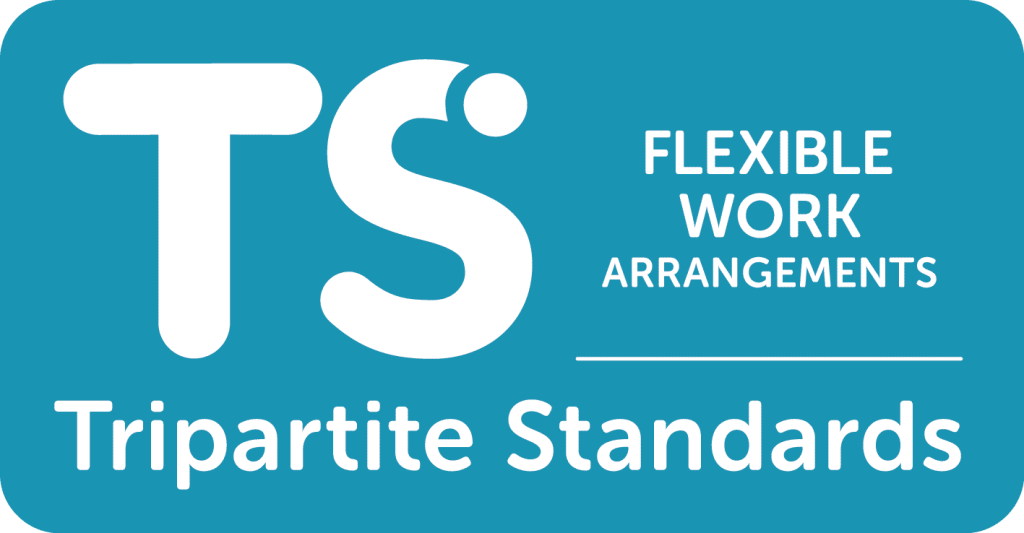
Prep Zone Academy® has adopted the Tripartite Standard on Flexible Work Arrangements, and has committed to be a fair and progressive employer.
© 2024 Prep Zone Academy | IB Tuition. All Rights Reserved
- IB Math Tuition
- IB English Tuition
- IB Physics Tuition
- IB Chemistry Tuition
- IB Biology Tuition
- IB Economics Tuition
- IB Psychology Tuition
- IB Score Guide
- Theory of Knowledge
- English Language & Literature
- IB Maths Webinar

- Customer Reviews
- Extended Essays
- IB Internal Assessment
- Theory of Knowledge
- Literature Review
- Dissertations
- Essay Writing
- Research Writing
- Assignment Help
- Capstone Projects
- College Application
- Online Class
English Extended Essay: The Complete Guide for IB Students
by Antony W
March 13, 2023
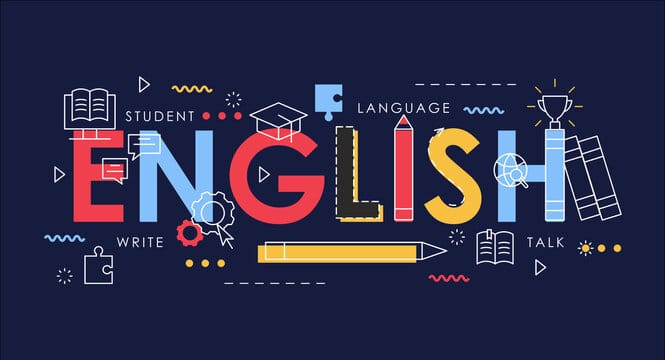
Group 1 Extended Essay subjects give IB students the opportunity to conduct independent research into a topic of interest in English, Language, and Literature.
Apart from promoting creativity and intellectual discovery, the subject group helps you to appreciate the value of advanced research and improve your writing skills.
In this guide, you’ll learn everything you need to know about English Extended Essay.
In particular, we will look at the definition of English EE, English EE categories, and some English Extended Essay topics to get you started.
English Extended Essay Categories
Category 1: language.
This category focuses on the analysis of some aspects of English.
Topics such as national language policies of English speaking countries, the influence of technology on English vocabulary, and use of dialects and ascents would fit into this category.
The primary sources of information for this category would be newspapers, interviews, and websites. You secondary sources would be articles and journals.
Category 2: Culture and Society
We divide Culture and Society further into two sub-categories.
In the first sub-category, the focus is on the effect of cultural change on a language in a particular issue on the use or form of the language itself.
In this case, your essay can focus on topic to do with gender, communities, or social groups.
For example:
- Does language reflect a shift in gender roles in the workplace?
- To what extend has the rise and use of slang among teenagers affected the English language?
Such are important and interesting questions that your Extended Essay can focus on if you choose to work on this sub-category.
The second sub-category focuses on artefacts. While this sub-category is general in its cultural nature, it must be specific to a country or community that speaks the language.
To research topics in this sub-category, you will have to use cultural artefacts, which can be visual documents (such as architectures and films), written documents (such as newspapers, articles, adverts, and magazines), spoken documents (such as interviews and screenplays), and fashion icons (such as food dishes or brands).
Category 3: Literature
This category of English Extended Essay is based on a specific work of literature wit text written in the English language.
How to Write English Extended Essay
Writing a 4,000-word essay takes time. You have to identify a topic of interest, develop a research question, determine what to base your research on, and find the right information to include in the essay.
In the following section, you’ll learn how to write a comprehensive English Extended Essay using an easy to follow, systematic approach – even if you think your topic of interest in the subject looks complicated.
Step 1: Pick a Topic of Meaningful Interest to You
Explore the topics and themes taught in you English class and pick one that’s not only of interest to you but also one you’d like to know more about.
Generally, the English EE topic you choose should:
- Be something you’re keen to investigate
- Allow you to formulate a relevant research question
- A subject that you can answer in 4,000 words
After identifying your area of interest and the topic that you would like to explore, it should be easy for you to develop a relevant research question to explore.
Step 2: Develop a Research Question
Many IB students fail Extended Essay because they get the research question part completely wrong. Quite too often, they choose narrow or broad topics that they can’t answer in 4,000 words.
You shouldn’t make the same mistake with your English Extended Essay. What you need is a workable research question with a clear focus that you can answer within the word limits of an Extended Essay.
To arrive at more concise topic to explore in your English Extended Essay, it’s best to employ relevant limiting factors to the broad topic.
For example, the theme “how technology and social media impact our lives” is obviously too broad because it doesn’t tell us what part or component of our lives social media affects exactly.
By applying limiting factor to this theme, we can come up with a more focused research question that will be easily to evaluate within the limits of the expected word count.
A question such as “ to what extent social media corrupted or contributed or corrupted the English language” would be an interesting and more specific topic to explore in your EE.
Step 3: Choose What to Base Your Research On
The third step to writing an English Extended Essay is to find relevant sources to support your research into the topic you selected in step 1.
Start by determine which English category you wish to base your Extended Essay on. That’s because there are minimum expectations when it comes to primary as well as secondary sourcing.
Step 4: Find More Information for Your Extended Essay
If you’ve ticked all the boxes in step one to three, schedule an appointment with your supervisor for more guidance on how to proceed further with your research project.
English Extended Essay Topics
You shouldn’t worry too much if you feel stuck on choosing the best topic for your English Extended Essay . We’ve put together a list of some topic ideas that cover different areas in literary themes, literature, and the English language.
English Extended Essay Topics for College and University
- Is the English a language of customs and traditions with no hard and fast rules unlike other languages in the world?
- How is the American English different from British English, and which one is superior to the other?
- Has globalization played a role in the development of the English language?
English Extended Essay Topics on English Poetry
- Was poetry a text of upper classes in English literature in the classical age and in the era of renaissance?
- Why are there fragmentation and lack of interconnectivity between the stanzas of poems in modern poetry?
English EE Topics on American Literature
- Do various American novels and other literary texts show how the American dream proves to be a complete failure?
- Why were slaves against the anti-slavery movement in the United States of America?
About the author
Antony W is a professional writer and coach at Help for Assessment. He spends countless hours every day researching and writing great content filled with expert advice on how to write engaging essays, research papers, and assignments.
- Support Sites
Extended Essay Support Site
Welcome to this free Support Site on the Extended Essay for the IB Diploma Programme . The content, created by Brad Philpot and John Royce, provides coordinators, supervisors, teachers and students access to student samples, writing tips, guidance and discussion groups. This site is developed independently from the IB.
Feel free to browse this Support Site as much as you need - a subscription is not needed. Please contact us for questions: [email protected]
- About the authors
Getting started
This section offers you a quick guide to the guide and some tips on how to get started. It is not presented as a replacement for the official guide, which can be found here . Rather this section captures the essentials of the guide for students and supervisors who are looking to start this journey.
- The journey
- Common misconceptions
- DOs and DON'Ts of the EE
- Topic, subject, question and title
- Interdisciplinary essays
- Approaches to learning
The Extended Essay is externally assessed by IB examiners. The following pages provide you with the assessment criteria , the grade boundaries , the TOK / EE matrix and tips on how to unpack the criteria. "Begin with the end in mind," as Stephen Covey famously said. It is recommended that you practice assessing extended essays, using these criteria, before writing an essay or submitting predicted grades to the IB. See the section with example essays.
- Assessment criteria
- TOK / EE matrix
- Grade boundaries
- Criteria quiz
Supervision
The Extended Essay is written under supervision, meaning that every student has a supervisor . Supervisors are usually subject teachers of the subject in which the essay is registered. What are the roles and responsibilities of the student and supervisor ? What kinds of expectations can be set? What do realistic deadlines and timelines look like? This section explores the supervision process and the relationship between the supervisor and student.
- Agreements and contracts
- Allocating supervisors
- EE Coordinator
The Extended Essay is an exercise in 'inquiry'. Inquiry is the art of identifying knowledge, framing questions and finding answers. It is a skill. One of attributes of an IB learner is being an 'inquirer'. The pages below focus predominantly on the early stages of research, in which you are identifying your aims, writing your research question and considering your methodology .
- Research question
- EE proposal
- KWL diagram
- Methodology
- Unpacking questions
- Models of inquiry
The Extended Essay is a research paper. But what does 'research' look like? Where does it happen? How can you get good at doing research? Answers to these questions may be different for everyone. But some research skills are useful to all Extended Essays, such as the ability to gather data, organise notes and evaluate sources. These pages provide you with tips and activities to develop good research skills for your Extended Essay.
- How research is assessed
- Primary and secondary sources
- Designing a search
- Research habits
- Evaluating sources
- Annotated bibliography
After hours of research and reflection, it's time to write the Extended Essay. This, however, is easier said that done. Most often notes evolve into paragraphs, outlines evolve into headings and quotations evolve into arguments. First drafts are often rough and you may stumble upon game-changing ideas late in the process. Here are few pages to guide you through the writing and reviewing processes.
- Essay structure
- The introduction
- Coherent paragraphs
- Concise writing
- Connectives
- Presentation
- Citing sources
It is recommended that students maintain a Researcher's Reflection Space ( RRS ) or journal as they engage in inquiry, conduct experiments, take notes or build a bibliography. After submitting the essay, each candidate must complete and submit a Reflections on Planning and Progress Form ( RPPF ). The pages below offer candidates and supervisors guidance on the RPPF . The RRS is explored in the section on research.
- RPPF questions
- Useful RPPF phrases
- An RPPF with examiner comments
Example essays
To better understand the scope and nature of Extended Essay, it helps to read a few examples. Each example below is accompanied by a list of tips to consider when writing about the subject under which is was registered. Mark an example essay from your subject area, applying the assessment criteria , before reading the examiner's comments and marks that are provided.
- History - Khmer Rouge
- Visual art - Klee
- Biology - Smoking
Course Dashboard

Extended Essay: Group 2: Language Acquisition
- General Timeline
- Group 1: English Language and Literature
Group 2: Language Acquisition
- Group 3: Individuals and Societies
- Group 4: Sciences
- Group 5: Mathematics
- Group 6: The Arts
- Interdisciplinary essays
- Six sub-categories for WSEE
- IB Interdisciplinary EE Assessment Guide
- Brainstorming
- Pre-Writing
- Research Techniques
- The Research Question
- Paraphrasing, Summarising and Quotations
- Writing an EE Introduction
- Writing the main body of your EE
- Writing your EE Conclusion
- Sources: Finding, Organising and Evaluating Them
- Conducting Interviews and Surveys
- Citing and Referencing
- Check-in Sessions
- First Formal Reflection
- Second Formal Reflection
- Final Reflection (Viva Voce)
- Researcher's Reflection Space (RRS) Examples
- Information for Supervisors
- How is the EE Graded?
- EE Online Resources
- Stavanger Public Library
- Exemplar Essays
- Extended Essay Presentations
- ISS High School Academic Honesty Policy

From IB Subject Specific Guide
Overview
A group 2 Extended Essay is intended for students who are studying a second modern language. Students may not write a group 2 Extended Essay in a language that they are offering as a language A for their diploma.
There are 3 categories of group 2 Extended Essays:
• Category 1—Language • Category 2—Culture and society (a or b) • Category 3—Literature.
Students should put the category in which they have presented their essay alongside the subject in which it is registered on the cover sheet of the extended essay, for example,
English B Cat: 2 (b); German B Cat :3; Spanish B Cat : 1.
A group 2 Extended Essay provides students with the opportunity to develop their awareness and knowledge of the language studied, and their understanding of the culture concerned. This is achieved by enabling students to pursue their interest in the language through research based on texts (taken to be any meaningful piece of spoken or written language, for example, an article, a book, a play, a poem) or on specific cultural artifacts (such as works of fine art or architecture, films, radio or television programmes, or popular music).
The Extended Essay must be written in the language for which it is registered (the target language). It must be focused on matters related to the target culture. The Extended Essay is a research essay and the assessment criteria emphasize the importance of research skills rather than linguistic proficiency. Although a certain level of ability in the language is obviously desirable in order to undertake a group 2 extended essay, fluency is neither a prerequisite nor a guarantee of success. In fact, students who are fluent in the language but who do not demonstrate the required research skills will definitely achieve a lower mark than students who are less fluent but who fulfill the other assessment criteria.
Choice of Topic
As indicated in the ”Overview” section, a group 2 extended essay aims to develop students’ knowledge and understanding of the target language and culture. Any proposed topic that will not further that aim should be rejected. The essay should consist of the study of an issue in one of three categories: language, culture and society, or literature. Combinations of these are also permissible. Each category has specific requirements that are described in this section. In addition, students should ensure that their topic:
• is worthy of investigation. For example, “Does tourism have a future in Switzerland?” or “Is the wine industry an important source of income for France?” would be too trivial for an essay of 4,000 words.
• is not too broad and allows for an effective treatment within the word limit. Topics such as “Racism in France”, “The theatre of the absurd”, or “A history of the French language” would need to be given a sharper focus.
• provides them with an opportunity to develop an argument and to demonstrate critical analysis and personal judgment rather than just knowledge. Topics that are merely descriptive or narrative, or that only summarize secondary sources (such as “French cheeses”, “The Provence region”, “The events of May 1968 in Paris”), should be avoided.
In each category the examples given are for guidance only .
Category 1 - Language
The essay should be a specific analysis of the language (its use, structure and so on) normally related to its cultural context or a specific text
|
|
|
| Topic | Language laws in Quebec |
| Research question | To what extent has Bill 101 contributed to increasing the prevalence of the French language in Quebec? |
| Approach | An investigation into the effect of Bill 101 on the status of the French language in Quebec. |
|
|
|
| Topic | Foreign words (gairaigo) in Japanese |
| Research question | Do young people use more words of foreign origin than older people? |
| Approach | A survey of younger people and older people. Results are compared for knowledge of foreign words, frequency of their use and attitude towards their use. |
|
|
|
| Topic | Alternative use of the forms “vos” and “usted” in the Spanish of the Rio de la Plata (River Plate) region |
| Research question | To what extent have differences between formal and informal usage disappeared from the language used in the Rio de la Plata region? |
| Approach | An investigation into the language of young people from Buenos Aires in the Rio de la Plata region in a range of communicative situations. |
Category 2 - Culture and Society
A: essays of a sociocultural nature with an impact on the language
The essay should be an analysis of a cultural nature that describes the impact of a particular issue on the form or use of the language.
|
|
|
| Topic | Language and feminism |
| Research question | Should feminine forms of more job titles be created in French to reflect shifting gender roles? |
| Approach | An examination of the linguistic and sociological arguments for and against the feminization of more job titles in French. |
|
|
|
| Topic | Language for family members |
| Research question | Does Japanese need new words to describe non-traditional family relationships as society changes? |
| Approach | A commentary on how the use of the words "shujin" and "kanai" have changed, together with an examination of the social factors that may require new linguistic terms for family relationships to be created. |
|
|
|
| Topic | Language and discrimination |
| Research question | To what extent does the language used by groups of young students from a secondary school in Buenos Aires reflect racial discrimination? |
| Approach | A sociolinguistic investigation into the way language used by young people reflects attitudes of discrimination present in contemporary society. |
B: essays of a general cultural nature based on specific cultural artifacts
The essay should be an analysis of a more general cultural nature but specific to a country or community where the language is spoken. Topics that are too broad and could apply to many cultures (like globalization, the death penalty or eating disorders) are inappropriate. Essays of a general cultural nature must be based on specific cultural artifacts. Cultural artifacts in this context are understood to include a wide variety of phenomena, ranging from works of fine art to newspapers, magazines and cartoons, to films, television programmes and popular music.
|
|
|
| Topic | Social criticism in the songs of MC Solaar |
| Research question | What is the nature of MC Solaar’s rap critique of modern French society? |
| Approach | An analysis of adverts targeted at the youth market seen over a one-month period, together with an analysis of how these are targeted, and possible reasons why the images used are chosen. |
|
|
| |
| Topic | Adverts in the Japanese media | |
| Research question | How and why do Japanese advertisers use such a high proportion of non-Japanese models in advertising? | |
| Approach | An analysis of adverts targeted at the youth market seen over a one-month period, together with an analysis of how these are targeted, and possible reasons why the images used are chosen. |
|
|
| |
| Topic | Representation of women in tango | |
| Research question | Which roles do women play in tango lyrics? | |
| Approach | A critical and thematic analysis of a corpus of tango lyrics to reveal female roles. |
Category 3 - Literature
The essay should be an analysis of a literary type, based on a specific work or works of literature exclusively from the target language. In the case of a comparison of texts, all texts must originally have been written in the target language.
|
|
|
| Topic | Haitian politics as depicted in works by Dany Laferrière and Gary Victor |
| Research question | Does Dany Laferrière in share the same point of view on Haitian politics as Gary Victor in |
| Approach | An investigation into the similarities between the ways these two writers treat this theme. |
|
|
|
| Topic | Pastoral references in Kenji Miyazawa |
| Research question | What role does the natural world play in |
| Approach | A commentary on the literary devices used by the author, together with the effect these have on the work. |
|
|
|
| Topic | Fictionalization of history in Abel Posse’s novels |
| Research question | How does Abel Posse construct an imaginary history in his novel |
| Approach | A textual analysis to reveal the narrative techniques used by the author to make the plot contrast with the order of chronological events. |
Helpful Websites
IB Language Acquisition Subject Specific Guide - Use tabs on the left under Language Acquisition: Subject Specific Guide for more information.
Gale Communications and Mass Media
Gale Literature Resource Center
- << Previous: Group 1: English Language and Literature
- Next: Group 3: Individuals and Societies >>
- Last Updated: May 30, 2024 9:48 AM
- URL: https://isstavanger.libguides.com/c.php?g=695888
- Donate to CLMP
- Support Us/Join Us
- Application Form
- Member Log In
A Reading List for Disability Pride Month 2024
We asked the many independent literary presses and magazines that make up our membership to share with us some of the literature they recommend reading in honor of Disability Pride Month, observed annually in July.
Poetry Collections
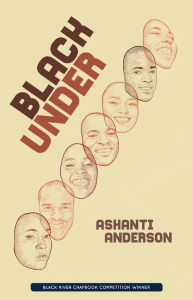
Black Lawrence Press | 2021
This poetry chapbook “layers outward perception with internal truth to offer an almost-telescopic examination of the redundancies—and incongruences—of marginalization and hypervisibility.”
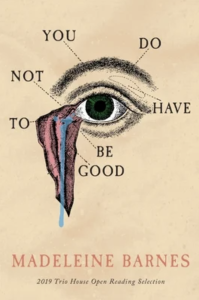
Trio House Press | 2020
In this poetry collection, Barnes “intimately immerses us in what it means to be chronically ill and reflects on the body’s connection to the planet.”
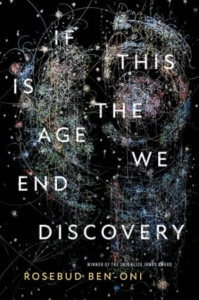
Alice James Books | 2021
Ben-Oni’s poems “are precisely crafted, like a surgeon sewing a complicated stitch, moving through the multiverses of family, religion, and discovery itself.”
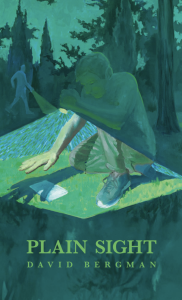
Passager Books | 2023
In this poetry collection, Bergman “offers up poems about aging parents, love, chronic illness, and friendship.”
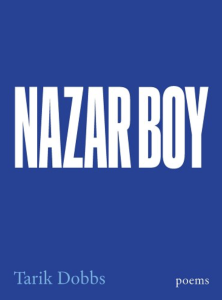
Haymarket Books | 2024
Dobbs’ poetry collection “explores surveillance, queerness, disability, race, and working-class identity in post-9/11 America.”
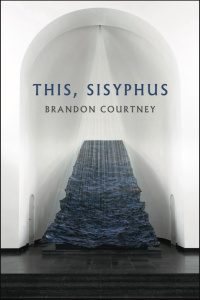
YesYes Books | 2019
According to Justin Phillip Reed, “Courtney’s erotic, erosive soldier’s psalms enunciate the guilt of doing what one can with the awful gift of a human life in the aftermath of another’s destruction.”
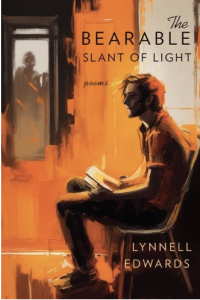
Red Hen Press | 2024
This poetry collection “documents a web of clinical assessments, medications, the terrible beauties of delusion, and the fragile gifts of darkness.”
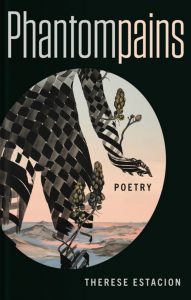
Book*hug Press | 2021
This poetry collection, which takes inspiration from Filipino horror and folktales, “is a visceral, imaginative collection exploring disability, grief and life by interweaving stark memories with dreamlike surrealism.”
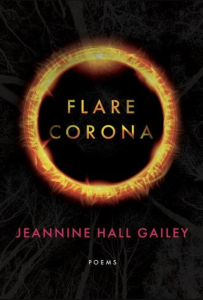
BOA Editions | 2023
Flare, Corona “paints a self-portrait of the layered ways that we prevail and persevere through illness and natural disaster.”
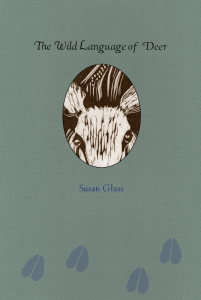
Slate Roof Press | 2021
According to Alison Luterman, this chapbook, “with its exquisite woodcuts and a poem in Braille translation, will subtly reorient your relationship to our world.”
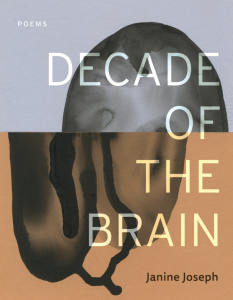
Alice James Books | 2023
This poetry collection is “an odyssey of what it means to recover—physically and mentally—in the aftermath of trauma and traumatic brain injury, charting when ‘before’ crosses into ‘after.’”
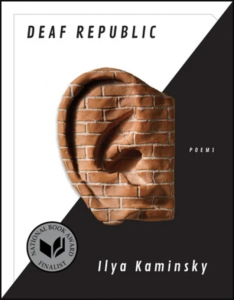
Graywolf Press | 2019
A finalist for the National Book Award for Poetry and the National Book Critics Circle Award, Kaminsky’s “astonishing parable in poems asks us, What is silence?”

Switchback Books | 2024
According to Cynthia Arrieu-King, Khoury “plunges us into the heartbreak of caregiving, maternal relationships, disability, and abusive dismissal.”
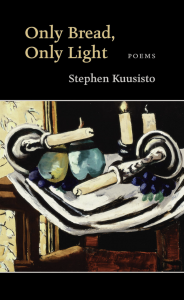
Copper Canyon Press | 2000
In his first poetry collection, Kuusisto “explores blindness and curiosity, loneliness and the found instruments of continuation.”
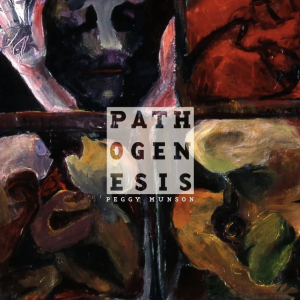
Switchback Books | 2008
According to Gerry Gomez Pearlberg, “Munson’s intriguing, kaleidoscopic poems transport the reader into a tough- and tender-hearted world of blood, illness, medical authoritarianism, and stubborn life force.”
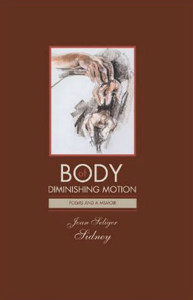
CavanKerry Press | 2004
This collection of poetry and memoir “speaks to the author’s experiences living with multiple sclerosis for four decades.”
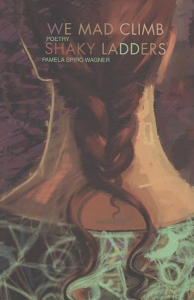
CavanKerry Press | 2009
This collection features “poems written over the course of twenty-five years as the author struggled to live with a devastating mental illness, paranoid schizophrenia.”
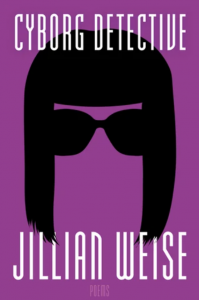
BOA Editions | 2019
Weise’s third collection of poetry “holds a magnifying glass to the marginalization and fetishization of disabled people while claiming space and pride for the people who already use technology and cybernetic implants every day.”
Novels, Fiction Anthologies & Short Fiction Collections
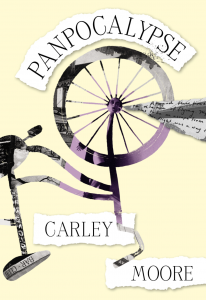
Feminist Press | 2022
According to Jamia Wilson, “Moore’s sharp and provocative voice adds much-needed complexity to the public discourse about the impact of COVID-19 on queer and disabled communities.”
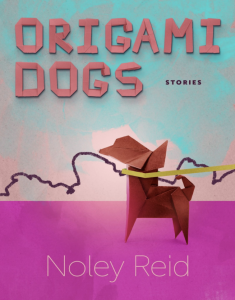
Autumn House Press | 2023
This short fiction collection “is a celebration of the bond of devotion possible between humans and dogs, and it presents an intimate rendering of the lives we share.”
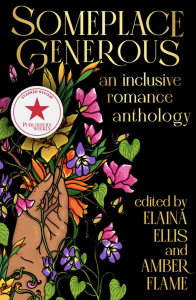
Generous Press | 2024
Edited by Elaina Ellis and Amber Flame, this anthology “presents voices largely new to the genre of romance, each bringing a fresh take on what it means to tell a love story.”
Nonfiction Books
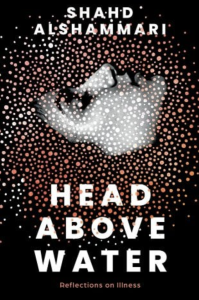
Feminist Press | 2023
This hybrid memoir “revisits personal journals to slowly piece together a narrative of chronic illness—a moving account of survival, memory, loss, and hope.”
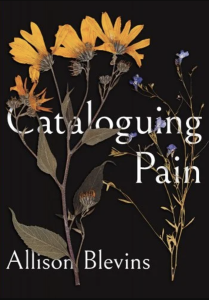
YesYes Books | 2023
In this memoir, Blevins “explores motherhood, sexuality, and queerness as it juxtaposes the author’s diagnosis of MS with her partner’s gender transition.”
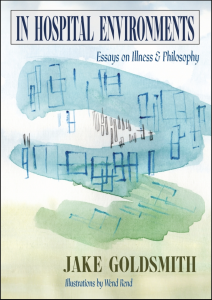
Sagging Meniscus Press | 2024
According to P. J. Blumenthal, this essay collection “should be made required reading for the chronically ill and the chronically healthy in the school of life.”
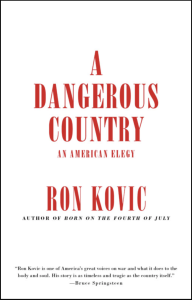
Akashic Books | 2024
Kovic “completes his Vietnam Trilogy with this poignant, inspiring, and deeply personal elegy to America.”
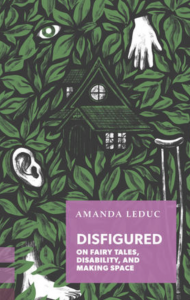
Coach House Books | 2020
In this book, Leduc “looks at fairy tales from the Brothers Grimm to Disney, showing us how they influence our expectations and behaviour and linking the quest for disability rights to new kinds of stories that celebrate difference.”
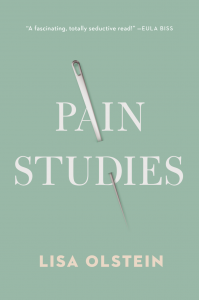
Bellevue Literary Press | 2020
In this extended lyric essay, Olstein “mines her lifelong experience with migraine to deliver a marvelously idiosyncratic cultural history of pain—how we experience, express, treat, and mistreat it.”
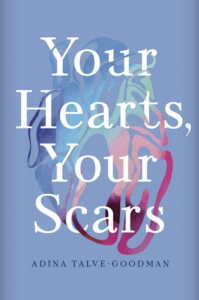
Bellevue Literary Press | 2023
In this essay collection, published posthumously, Talve-Goodman “tells the story of her chronic illness and her youthful search for love and meaning, never forgetting that her adult life is tied to the loss of another person—the donor of her transplanted heart.”
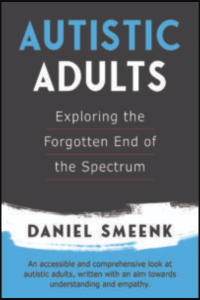
Ronsdale Press | 2023
In this book, Smeenk discusses “how autistic adults present and how they see themselves and offers insights on autistic adults, from an autistic writer.”
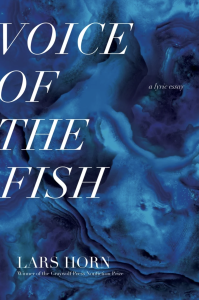
Graywolf Press | 2022
This interwoven essay collection “explores the trans experience through themes of water, fish, and mythology, set against the backdrop of travels in Russia and a debilitating back injury that left Horn temporarily unable to speak.”
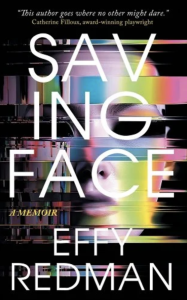
Vine Leaves Press | 2024
This memoir “honors the grace of a face that stands out in a crowd, defying societal beauty norms.”
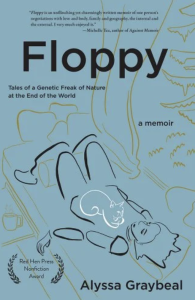
Red Hen Press | 2023
According to Rebecca Fish Ewan, “Graybeal spins a richly imaged and often hilarious story from the fibers of her own quest for life while navigating the challenges of having a rare genetic disorder.”
Literary Magazines
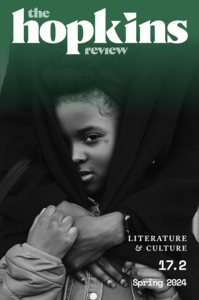
The Hopkins Review | 2024
This poem begins, “all of them gawkers, neighbors pointing, and a kindergarten / teacher clumsily mash-jammed letters that were supposedly / my mother’s name.”
Multiplicity Magazine | 2024
This essay begins, “The sun was just beginning to rise in the cloudless sky, and from my position seventy feet up on the steel, I was privy to a breathtaking view of it.”
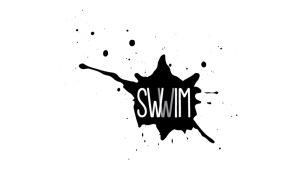
SWWIM | 2022
This poem begins, “You need to discuss feelings, make plans. Yesterday, a man posted in your spouse support group about his wife’s dementia.”
The Cincinnati Review | 2024
This essay begins, “Today I woke up and was immediately wracked by: 1. An agonizing burning sensation all over my body, from head to toe, one of the manifestations of my chronic pain….”
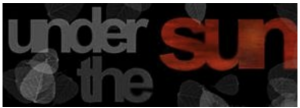
Under the Sun | 2024
This essay begins, “This morning, I walked outside with my dog Cordelia. I wasn’t fully awake, but I noticed the quality of light had changed.”
Boston Review | 2024
This forum, which features discussions about terminology and the fight for disability rights, includes contributions by Robert Chapman, Ari Ne’eman, and others.
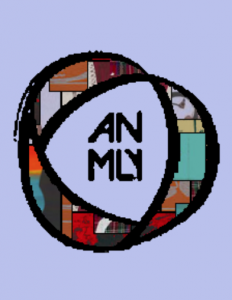
ANMLY | 2017
According to editor Sarah Clark, “When I put out the call for work for Glitterbrain, what I wanted the most was realness, whatever that may mean. Because neurodiverse, queer, people of color are denied what is real.”
Exacting Clam | 2024
This essay begins, “I’m almost fearful of the unwanted connotations so many words possess.”

SWWIM | 2024
This poem begins, “As we cross the bridge, I count a dozen pelicans / perched on the railing, each waiting for the perfect / bite.”
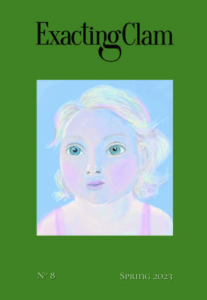
Exacting Clam | 2023
This issue features “extraordinarily varied writing relating to disability and chronic illness,” including excerpts from four books longlisted for the 2023 Barbellion Prize.
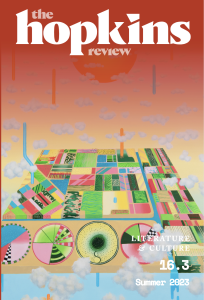
This essay begins, “Walking is strange to me. I experience it as something akin to being on a ship: unstable, rocking, faintly surprising.”
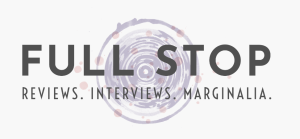
Full Stop | 2024
In this conversation, Larson and Lee “touch on voyeurism, persona, and the implications of laying bare our most intimate thoughts and feelings.”
Off Assignment | 2020
This letter begins, “I met you in the heat of the afternoon. The clouds were drowning in a blue-glass sky, and New York stretched on all around.”
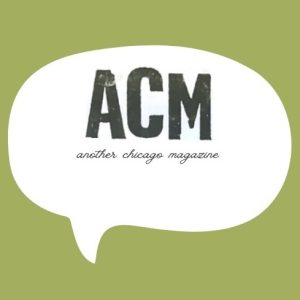
Another Chicago Magazine | 2022
At the beginning of this interview, Lehrer says, “I have had to learn medical language for a number of reasons. Certainly for my own care. The experience of being in the hospital in particular demands it.”
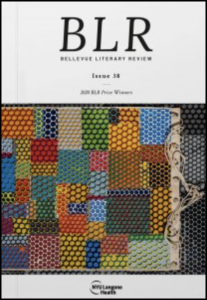
Bellevue Literary Review | 2020
This poem begins, “The world mostly gone, I make it what I want: / from the balcony, the morning is a silver robe of mist….”
This essay begins, “We were perched on a narrow platform high atop a scaffolding overlooking the stage sixty feet below, upon which a Fife and Drum Corps from Pennsylvania went through its paces.”
manywor(l)ds | 2024
This poem begins, “my bed asks me where my / will to get up is; my will to / get up runs and hides / under layers of illness.”
Wellspringwords | 2021
This essay begins, “When I tell people how I slowly started losing my vision, I begin most times with the day people started walking in opposite directions and I sat on the big rock outside my grandmother’s shop wondering if I had unlocked a magical dimension only I could see.”
Off Assignment | 2022
This essay begins, “1:11 p.m. at Hippie Hollow is lake smells and crushed beer cans and butt angels on the rocks.”

Full Stop | 2021
In this conversation, Mathis and Berkowitz discuss “how our texts, our selves, and our writing practices have changed since our books were first published.”

Another Chicago Magazine | 2018
This essay begins, “I began golfing in my early twenties after developing an overwhelming desire to better know my father and grandmother, who both believe the best place to spend a sunny, or rainy, or overcast Saturday is on the golf course.”
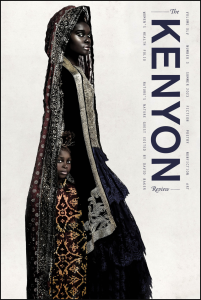
Kenyon Review | 2023
This essay begins, “When I see my daughter for the first time, at my twenty-week scan, she is lying on her back with her ankles crossed. She is a lady of leisure.”
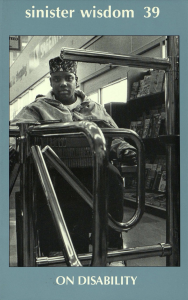
Sinister Wisdom | 1990
This issue “contains work from and about womyn whose lives are seriously disrupted by long-term conditions,” including Pat Parker, Barbara Ruth, and Amy Edgington.
This hybrid work begins, “I’m asked to write an essay about my relation to attention. I insert the word dissociate.”
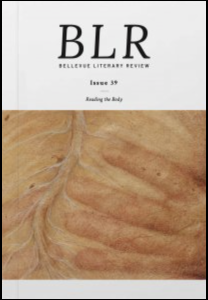
This essay begins, “Probes puncture my scalp, surveying my mind. Temporal lobe, occipital lobe, you name it; there’s a probe for the lobe.”

ANMLY | 2021
According to editor Sarah Cavar, the poetry, fiction, photography, and artwork in this two-part folio celebrates “Mad creation, craft, and methodology” and “offers a third, collaborative option, in which we can bring our whole, multiple, unrecovered and anti-recovery selves to the table to tell the stories only we know how to tell.”
Lost your password?
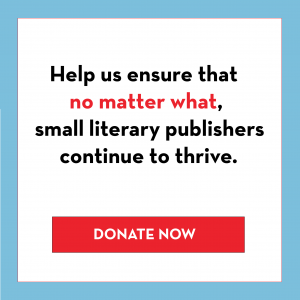
SNYDE | Revelations that Alice Munro protected…
Share this:.
- Click to share on Facebook (Opens in new window)
- Click to share on X (Opens in new window)

SNYDE | Revelations that late Nobel Laureate Alice Munro protected daughter’s abuser rock literary world

When Andrea Robin Skinner told her mother of the abuse years later, Munro appeared to be more hurt by her husband’s “infidelity” than by the injury to her daughter, Skinner wrote in an essay for the Toronto Star .
Though she left her husband for a few months, Munro ultimately went back to him, remaining by his side until his death in 2013, the same year the short-story writer earned the Nobel Prize in Literature.
Skinner is the youngest child of Munro and first husband Jim Munro, whose divorce generated the joint custody arrangement that had the girl spending summers with her mother and stepfather.
“One night, while she was away, her husband, my stepfather, Gerald Fremlin, climbed into the bed where I was sleeping and sexually assaulted me,” Skinner wrote. “I was 9 years old.”
The effect on her physical health was immediate, Skinner said. The next day dawned with her first-ever migraine, a condition she still lives with. Over the years, Skinner struggled with health issues including bulimia so severe that she had to drop out of an international program during college.
Though Skinner told her father and stepmother about the abuse as soon as she returned home that summer, they did not convey the information to Munro. Her siblings also remained silent.
It was not until Skinner was 25 that she told her mother about the abuse in a letter.
“She reacted exactly as I had feared she would, as if she had learned of an infidelity,” Skinner wrote in the Star. “She said that she had been ‘told too late,’ she loved him too much, and that our misogynistic culture was to blame if I expected her to deny her own needs, sacrifice for her children, and make up for the failings of men.”
When Fremlin found out Munro knew of the abuse, he wrote letters exonerating himself, blaming it on 9-year-old Skinner and calling her a “homewrecker” who had “invaded my bedroom for sexual adventure.”
The only thing he faulted himself for was cheating on his wife.

When Skinner gave birth to twins in 2002 and told Munro she wouldn’t let them near Fremlin, it spelled the end of their mother-daughter relationship. Munro balked and said it would be hard for her to visit, and Skinner cut off contact. They never reconciled.
The estrangement extended to the rest of the family, as Skinner stepped back under the impression that “they’d be relieved not to be living in this double world anymore,” she told the Star.
In 2005 Skinner went to the police, and Fremlin was convicted of indecent assault, with those letters among the evidence. Even then, the silence continued, both inside and outside the family.
Eventually Skinner’s siblings reached out, and they have since reconciled.
lots of people reflexively denying that Alice Munro could have knowingly spent her life with the pedophile who abused her daughter, or rushing to say they never liked her writing — harder to accept the truth that people who make transcendent art are capable of monstrous acts — Michelle Cyca (@michellecyca) July 7, 2024
The literary world, and Munro’s legions of fans, are now squinting under the new light being shined on her work, which is laced with intricacies about dark family secrets, denial and estranged children .
The family wants Munro’s work to be revered, according to the Star, but they also feel her legacy is not complete without the darker side of her personal story being told.
Skinner’s siblings also want to aid in her healing, which is ongoing.
With News Wire Services
More in SNYDE

SNYDE | Benji Gregory, child star of ‘Alf,’ found dead at 46 alongside service dog

SNYDE | Pearl Jam guitarist Josh Klinghoffer sued after killing pedestrian

National News | Opening statements in Alec Baldwin trial: actor ‘committed no crime’

SNYDE | John Mulaney, Olivia Munn tie the knot in intimate NY ceremony
Jump to navigation
|
| |
Fictions of the Pandemic: Extended Deadline
Special Issue Call for Papers: Fictions of the Pandemic
Guest Editors: Roanne Kantor (Stanford) and Ragini Tharoor Srinivasan (Rice) Extended Deadline for Submissions: 1 August 2024
For this special issue, MFS invites contributors to consider and problematize the role of literary scholarship in apprehending, producing, and critiquing fictions of the pandemic. “Fictions of the Pandemic” pursues the imaginative structures, disputed narratives, cross-pollinating conspiracies, and contested discourses emergent from the COVID-19 pandemic. Since the recognition of the novel coronavirus in late 2019, various interconnected fictions of the pandemic have circulated in the public sphere, from the idea of universally shared trauma to the promise of technological solutions. These fictions have been countered in turn by the realities of entrenched racial and class disparities and of global vaccine apartheid. Meanwhile, new characters have emerged as the ambivalent subjects of this historical conjuncture: the essential worker, the antimasker, the long-hauler, the COVID minimizer, and the masked minority. Likewise, the dominant plot points, narrative frameworks, and even genres of fictions of the pandemic have shifted (from the romance of revolutionary change to the tragedy of eclipsed horizons) as we move from the acute phase of coordinated global response to COVID to the chronic phase of capitulation to the virus as a normalized and never-ending event.
We propose that the COVID pandemic necessitates a thoroughgoing rethinking of literary objects and literary methods. What kind of object is “pandemic fiction,” given the slipperiness of the COVID response itself: alternately criminal or progressive, inadequate or an overreaction, depending on where you sit on the Zoom chessboard? What is the work of critique when reactions of suspicion, paranoia, and denial—about the gravity of the pandemic, the motives of policymakers, or even the actions of one’s neighbors—feel owned by the right, seemingly to relegate progressive scholarship to gestures of hope, faith, and repair? How do we, as thinkers of the present and explainers of the future, reckon with a world in which our critical practices are so evidently entangled with and defined by our others? What stories did we tell during the pandemic, and why? Whose stories can we tell now, and whose are verboten? What kinds of questions should we have asked, and why didn’t we ask them? What fictions of the past, present, and future have we had to forgo or forget in light of COVID-19? And in what ways might we, as literature scholars, be exactly the right, and wrong, constituency to pursue these questions, given dueling investments in the reparative potential of narrative, on the one hand, and widespread skepticism about the radicality of close reading, on the other?
Contributors are invited to pursue any of the above questions and other related topics, including:
● Counterfactual thinking and theorizing in the pandemic-era; narratives that imagine the (lost) pasts and futures that-would-have-been in the absence of COVID-19; questions of periodization
● Real-time collaborations in fiction-writing and fiction-reading (such as Wattpad, Scriggler, Booksie, and similar sites)
● Critique and post-critique in an era of conspiracy, denialism, suspicion, cruel optimism, and in light of pandemic affects such as doubt, melancholy, relief, fury, jealousy, and grief
● Infrastructural aesthetics, architecture, and the built environment given transformations in work from home, the real estate market, and evolving relations to public space; the literary registration of infrastructural decay
● Technologies and artifacts of the pandemic; objects such as masks, tests, vaccines, and ventilators, as well as software applications for infection surveillance, video communications, and the circulation of information in both its original and “mis” variants; the narratives of “UX” that frame their ideal anticipated user and inevitable obsolescence
● The suppression and minimization of pandemic narratives by mainstream media, global publishing houses, and literary agents
● Reading the atmospheric and affective traces of the COVID-19 pandemic in fiction that does not explicitly deal with the pandemic
● Transformations in the “pandemic fiction” genre before and after COVID; teaching fictions of the pandemic; pandemic-era transformations, innovations and upheavals in literary pedagogy; the aesthetics of pandemic fiction; ecocritical and health humanities approaches to fictions of the pandemic
We seek surprising, ambitious, theoretically-rich, and provocative responses to this CFP. Essays that creatively introduce elements of fiction, fictionality, or generic hybridity into their analyses of fictions of the pandemic are also welcome.
Essays should be 7,000–9,000 words, including all quotations and bibliographic references, and should follow the MLA Handbook (9th edition) for internal citations and Works Cited. Please submit your essay via the online submission form at http://mc.manuscriptcentral.com/mfs . Queries ahead of submission may be directed to Roanne Kantor ( [email protected] ) and Ragini Tharoor Srinivasan ( [email protected] ).
‘I knew this day was going to come’: Alice Munro associates say they knew of abuse
A biographer of the Canadian writer says he was among those who knew that Munro’s daughter had been sexually abused by her stepfather.

Additional dismay reverberated through the literary world on Tuesday as it came to light that a biographer and others had known for years that Nobel Prize-winning Canadian writer Alice Munro, who died in May at 92, had long kept secret that her second husband sexually abused one of her daughters.
In an essay published last weekend in the Toronto Star , Andrea Robin Skinner, a daughter of Munro’s, wrote that her stepfather, Gerald Fremlin, had sexually assaulted her starting in 1976, when she was 9 years old. And after Munro learned of the abuse from her daughter 16 years later, she reacted without sympathy to Skinner and chose to stay with Fremlin; they remained married until he died in 2013.
An extra shock was Skinner’s claim that some who knew Munro had been aware of the story for years.
Robert Thacker, a Canadian academic and author of “ Alice Munro: Writing Her Lives ,” said that he expected this revelation and its fallout to happen.
“I knew this day was going to come,” Thacker told The Washington Post on Monday, later adding, “I knew that it was going to come out, and I knew that I would be having conversations like this.”
Thacker said that Skinner wrote to him about her experience in 2005, after she had contacted police about Fremlin and as Thacker’s book was going to press. He decided not to act on the information.
“Clearly she hoped — or she hoped at that time, anyway — that I would make it public,” he told The Post on Monday. “I wasn’t prepared to do that. And the reason I wasn’t prepared to do that is that, it wasn’t that kind of book. I wasn’t writing a tell-all biography. And I’ve lived long enough to know that stuff happens in families that they don’t want to talk about and that they want to keep in families.”
“As Alice’s Canadian editor and publisher, I was aware that Alice and Andrea were estranged for a number of years,” Douglas Gibson wrote in an email responding to an interview request from The Post. “In 2005, it became clear what the issue was, with Gerry Fremlin’s full shameful role revealed, but I have nothing to add to this tragic family story and have no further comment to make.”
Others close to Munro expressed great surprise. “I did not learn the details of this until everyone else did, though I’d had hints not long before this past weekend. Horrifying,” Canadian novelist Margaret Atwood, a friend of the author’s, said in an email to The Post.
Thacker said that he and Munro spoke about the matter in 2008, when they met in a restaurant for an interview. Munro asked him to turn off his recorder. He declined to describe the conversation in detail, but said that Munro informed him that, in 1992, when Skinner was 25, she told Munro about the abuse. Munro said that she had left Fremlin for a time and that she ultimately decided to return.
“In a case like this, I wasn’t prepared to be probing,” Thacker said, later adding: “The term she used was, she was ‘devastated.’ And she was devastated. It wasn’t anything she did. It was something he did.” A story by two reporters at the Toronto Star described how Fremlin had written letters admitting to the abuse and pleaded guilty to indecent assault in 2005.
According to Thacker, it was broadly understood that Munro drew from events in her life for her 1993 story “ Vandals ,” about a woman who represses the knowledge that her partner sexually abused children: “Those of us who [study] Alice, or have [studied] Alice, have always thought that this story directly connected to this whole issue.”
Skinner, who did not return The Post’s request for comment, wrote in her essay that her mother’s fame meant that the silence about her abuse extended beyond her family: “Many influential people came to know something of my story yet continued to support, and add to, a narrative they knew was false.”
Others who worked closely with Munro knew about Skinner’s experience, Thacker said: “Certainly people knew there was a burden she was dealing with.” He declined to name specific individuals, but said that he had spoken with a colleague about their anticipation that Munro’s family secret would be shared with the world, and that both had resolved to confirm that they had known earlier.
Penguin Random House Canada did not return a request for comment. When contacted by The Post, Deborah Treisman, the fiction editor at the New Yorker, which first published many of Munro’s stories, declined through a spokesman to comment.
We are a participant in the Amazon Services LLC Associates Program, an affiliate advertising program designed to provide a means for us to earn fees by linking to Amazon.com and affiliated sites.


COMMENTS
The extended essay is an independent, self-directed piece of research, finishing with a 4,000-word paper. One component of the International Baccalaureate® (IB) Diploma Programme (DP) core, the extended essay is mandatory for all students. Read about the extended essay in greater detail.
Conclusion. References and bibliography. Additionally, your research topic must fall into one of the six approved DP categories, or IB subject groups, which are as follows: Group 1: Studies in Language and Literature. Group 2: Language Acquisition. Group 3: Individuals and Societies. Group 4: Sciences.
An extended essay in language and literature gives students an opportunity to do independent research into a topic of special interest to them within the subject. It is intended to promote advanced research and writing skills, intellectual discovery and creativity.
These highlight the diverse range of topics covered by International Baccalaureate® (IB) Diploma Programme (DP) students during their extended essays. Some examples are: "An analysis of costume as a source for understanding the inner life of the character". "A study of malnourished children in Indonesia and the extent of their recovery ...
How are Rose and her familial relations characterized using magical realism and other literary devices in The Particular Sadness of Lemon Cake by Aimee Bender? EE English A (Lit) High scoring IB English A (Lit) Extended Essay examples. See what past students did and make your English A (Lit) EE perfect by learning from examiner commented examples!
The extended essay provides: practical preparation for undergraduate research. an opportunity for students to investigate a topic of personal interest to them, which relates to one of the student's six DP subjects, or takes the interdisciplinary approach of a World Studies extended essay. Through the research process for the extended essay ...
In what ways are themes of feminism portrayed in the play, "Hedda Gabler" by Henrik Ibsen and the poem "The Drunken Husband" by Marilyn Chin? EE English A (Lang & Lit) B. High scoring IB English A (Lang & Lit) Extended Essay examples. See what past students did and make your English A (Lang & Lit) EE perfect by learning from examiner ...
A Group 1 Extended Essay in studies in language and literature gives students an opportunity to undertake independent research into a topic of special interest to them within the subject. ... Where a comparative approach is taken, and at least one of the text types is non-literary and/or multimodal, the essay would be a category 3. At the point ...
Studies in Language and Literature Group 1 Extended Essays involve looking at works from a literary point of view. These essays give students with a wide range of literary hobbies many choices. I think this group is more manageable because there are so many tools. Critical analyses of literature and scholarly pieces on most well-known works are ...
Introduction. The extended essay, a compulsory requirement of the IB diploma programme, is an independent, self-directed piece of research and an in-depth study of a focused topic chosen from one of your six chosen subjects for the IB diploma. It is intended to promote high-level research, writing skills, intellectual discovery, and creativity.
The topic of the extended essay is the subject, issue or theme that you are investigating within a specific DP subject or world studies area of study. The topic, which develops during the initial thinking about the EE, should later be reflected in the wording of the title. The title of the EE is a clear, summative statement that specifically ...
IB Extended Essay; Past Essays; Search this Guide Search. IB Extended Essay: Past Essays. EE Home; Lessons Toggle Dropdown. Research Questions ; Past Essays ; Notes & Outlines ... Check these CAREFULLY to be sure your topic fits with IB expectations! Language & literature (language A) Language acquisition (language B) Economics. Chemistry ...
The extended essay should be written in a clear, correct and formal academic style, appropriate to the subject from which the topic is drawn. Given that the extended essay is a formally written research paper, it should strive to maintain a professional, academic look. To help achieve this, the following formatting is required:
In this comprehensive guide, IB students will find a curated list of Literature Extended Essay Topics designed to inspire in-depth analysis and passionate research of literary works. From the development of the tragic hero to the representation of artificial intelligence in literature, these topics cover a wide range of genres, themes, and time ...
Extended Essay & RPPF Exemplars. (Language B) Studies in language and literature: Punk music in the UK. How did the punk movement influence certain aspects of the British culture did in the 20th century? (Language B) Language acquisition: Linguistic Strategies in the United States Presidential Election Debates 2016.
EE English B A. How successfully has Kate Chopin used male and female characters, and symbols and imagery through the settings in her realist novel, "The Awakening", to depict the main character, Edna's self-discovery while having been encompassed by the gender norms of the 19th century United States? EE English B A.
In this article, we present a selection of thought-provoking topics for your English A Extended Essay, designed to pique your curiosity and challenge your analytical skills. From researching Gothic elements in classical literature to examining social inequality through Dickensian narratives, each topic offers a unique way to investigate ...
The International Baccalaureate® (IB) provides several resources for IB World Schools. These include support materials for the extended essay. Items in the IB store are available to everyone. Publications include: 50 more extended essays, a DVD of essays submitted in the DP that all fulfil the requirements for an 'A' grade in the current ...
The IB Extended Essay (EE) is a 4000-word essay relating to one of your IB subjects. Tackle your EE with 15 top tips from Prep Zone's IB expert. ... For example, in Literature, novels, poems, and anthologies are considered primary sources while secondary sources comprise articles or literary reviews related to your topic. 2. Visit a library.
Category 3: Literature . This category of English Extended Essay is based on a specific work of literature wit text written in the English language. How to Write English Extended Essay . Writing a 4,000-word essay takes time. You have to identify a topic of interest, develop a research question, determine what to base your research on, and find ...
Welcome to this free Support Site on the Extended Essay for the IB Diploma Programme.The content, created by Brad Philpot and John Royce, provides coordinators, supervisors, teachers and students access to student samples, writing tips, guidance and discussion groups. This site is developed independently from the IB. Feel free to browse this Support Site as much as you need - a subscription is ...
extended essay under consideration. Criterion A: Focus and Method - 6 points possible For all three categories of studies in language and literature essays, the term "research" should be interpreted as "research material(s)" or "area of investigation" or "the topic under investigation".
There are 3 categories of group 2 Extended Essays: • Category 1—Language. • Category 2—Culture and society (a or b) • Category 3—Literature. Students should put the category in which they have presented their essay alongside the subject in which it is registered on the cover sheet of the extended essay, for example, English B Cat: 2 ...
In this extended lyric essay, Olstein "mines her lifelong experience with migraine to deliver a marvelously idiosyncratic cultural history of pain—how we experience, express, treat, and mistreat it." BUY THE BOOK . Your Hearts, Your Scars by Adina Talve-Goodman. Bellevue Literary Press | 2023. In this essay collection, published ...
The literary world and fans of the late writer Alice Munro reckon with the fact that she stayed with her husband knowing he molested her daughter.
EE Biology A. Fast track your coursework with mark schemes moderated by IB examiners. Upgrade now 🚀. Promoted. Advertise with Clastify. To what extent do different concentrations of Magnesium Nitrate (10, 20, 30, 40, 50 mM) affect the concentration of chlorophyll a and b in Ocimum basilicum at 645 nm and 662 nm wavelength using ...
Guest Editors: Roanne Kantor (Stanford) and Ragini Tharoor Srinivasan (Rice) Extended Deadline for Submissions: 1 August 2024 . For this special issue, MFS invites contributors to consider and problematize the role of literary scholarship in apprehending, producing, and critiquing fictions of the pandemic.
In an essay published last weekend in the Toronto Star, Andrea Robin Skinner, a daughter of Munro's, wrote that her stepfather, Gerald Fremlin, had sexually assaulted her starting in 1976, when ...